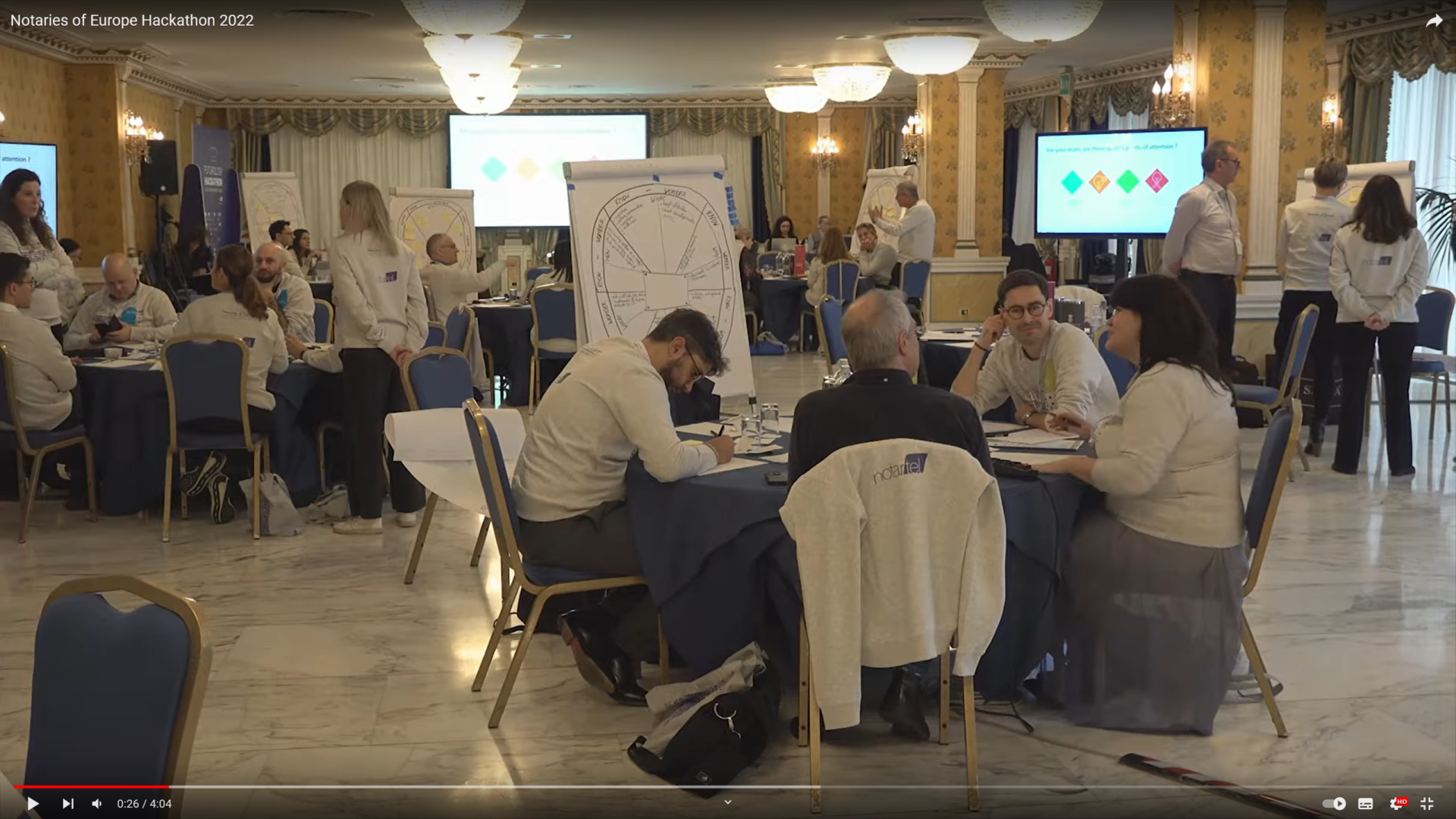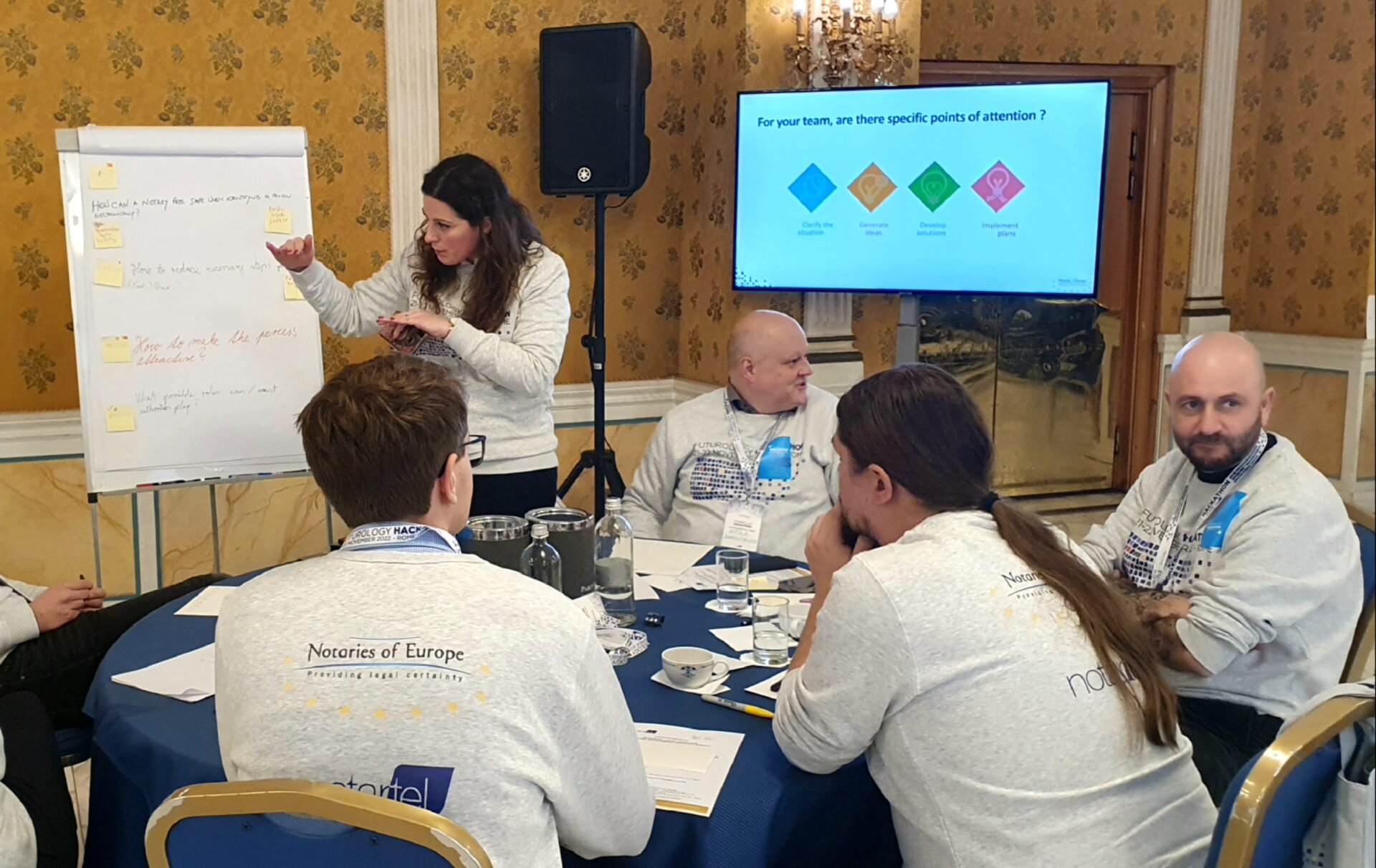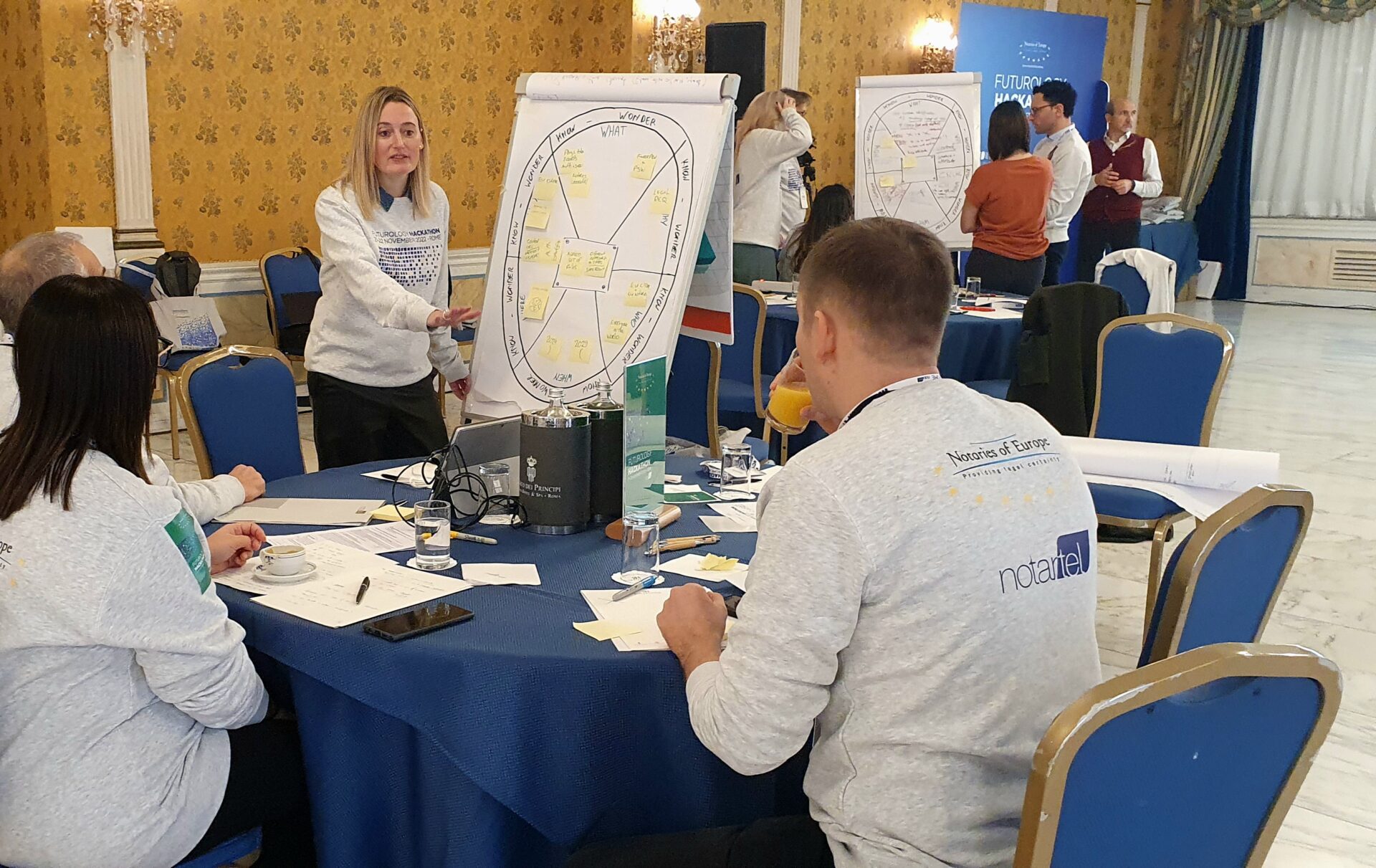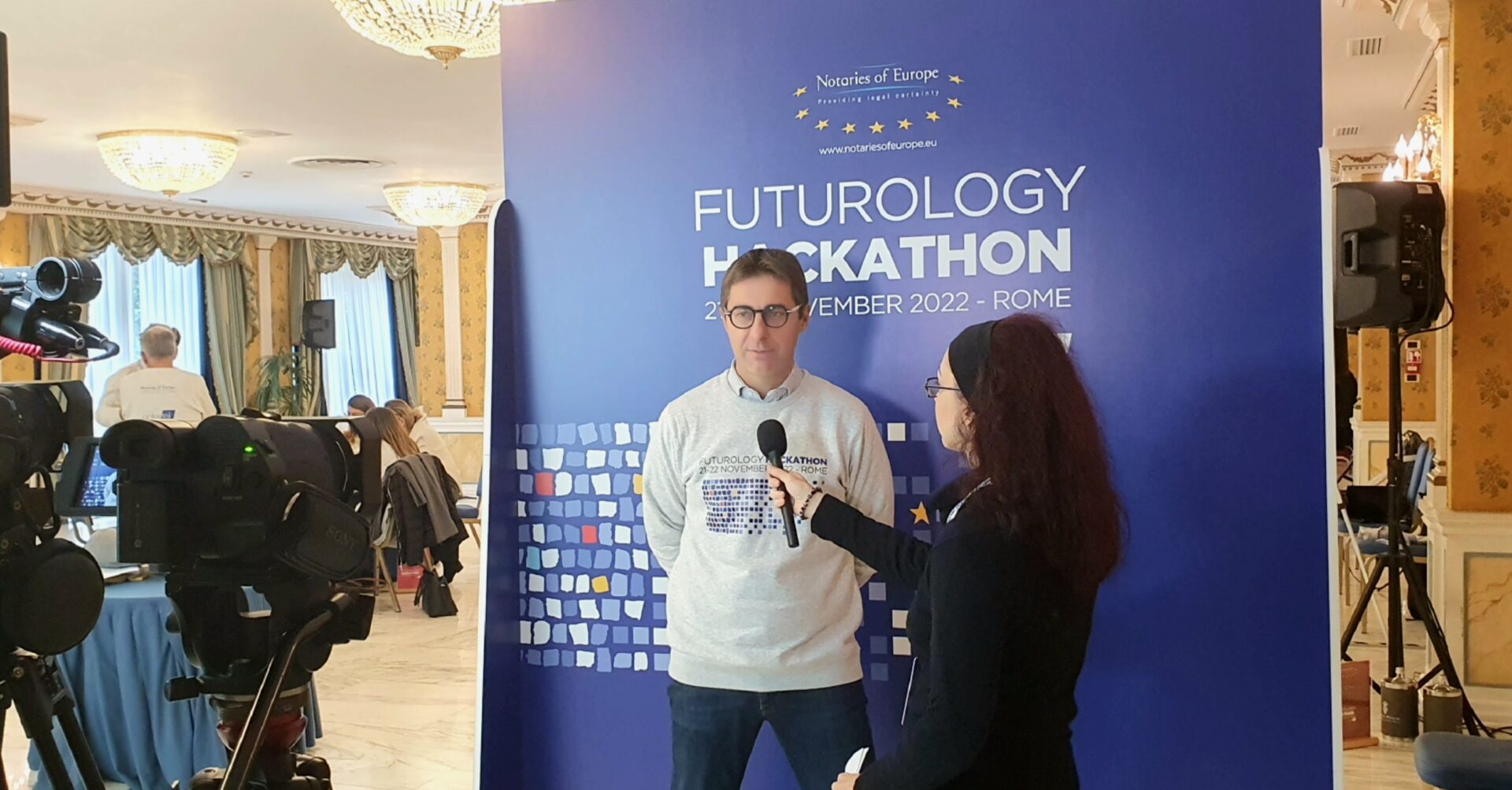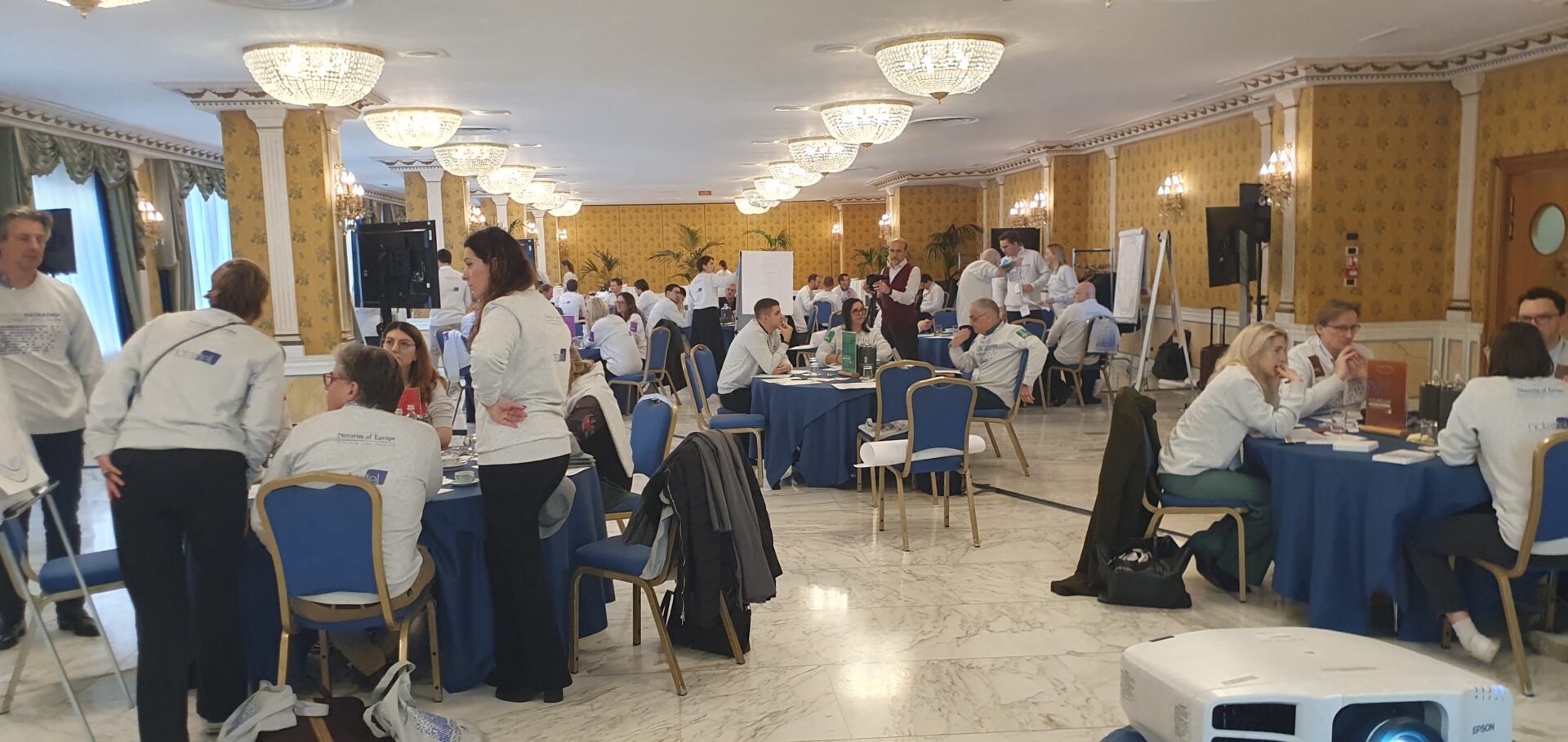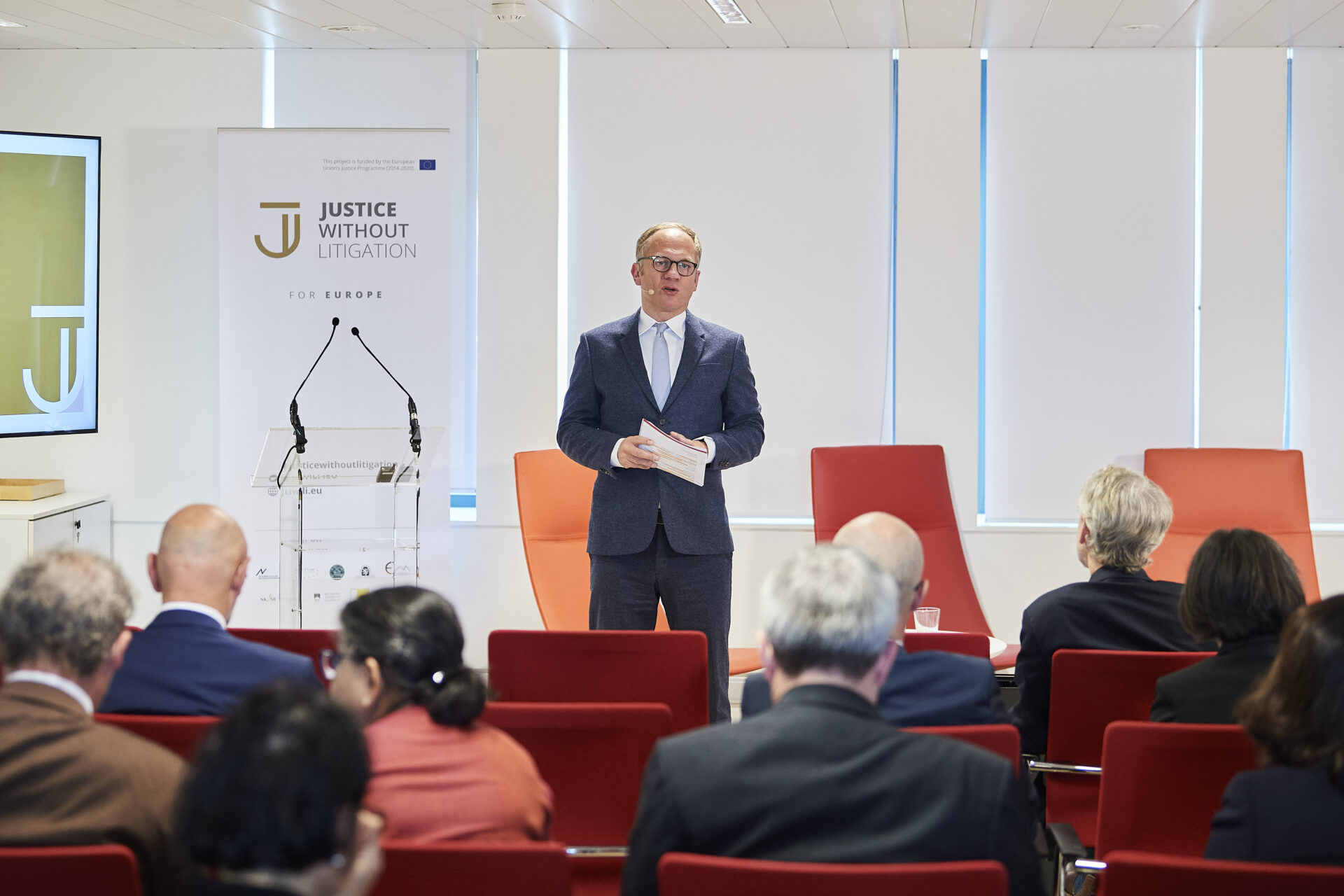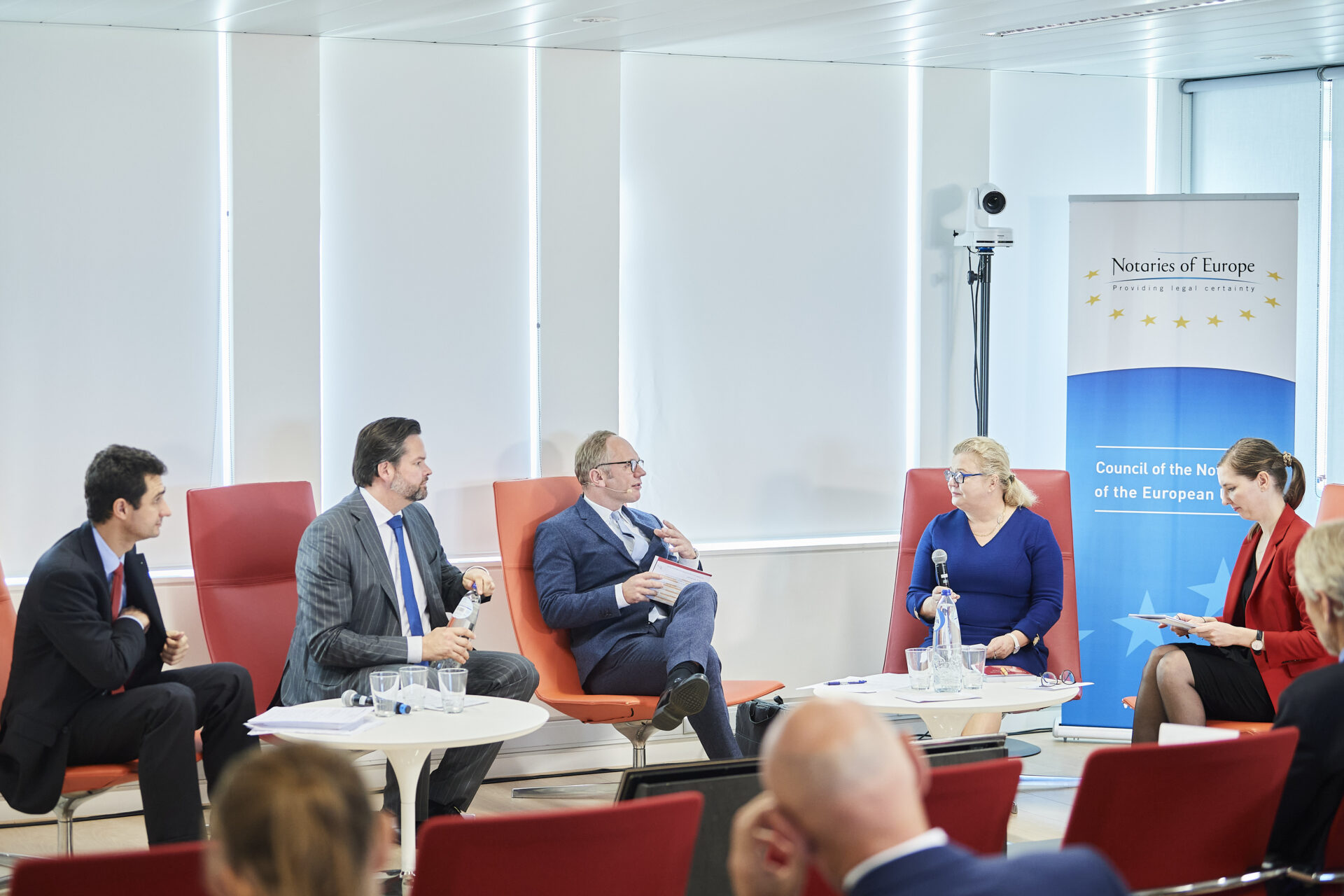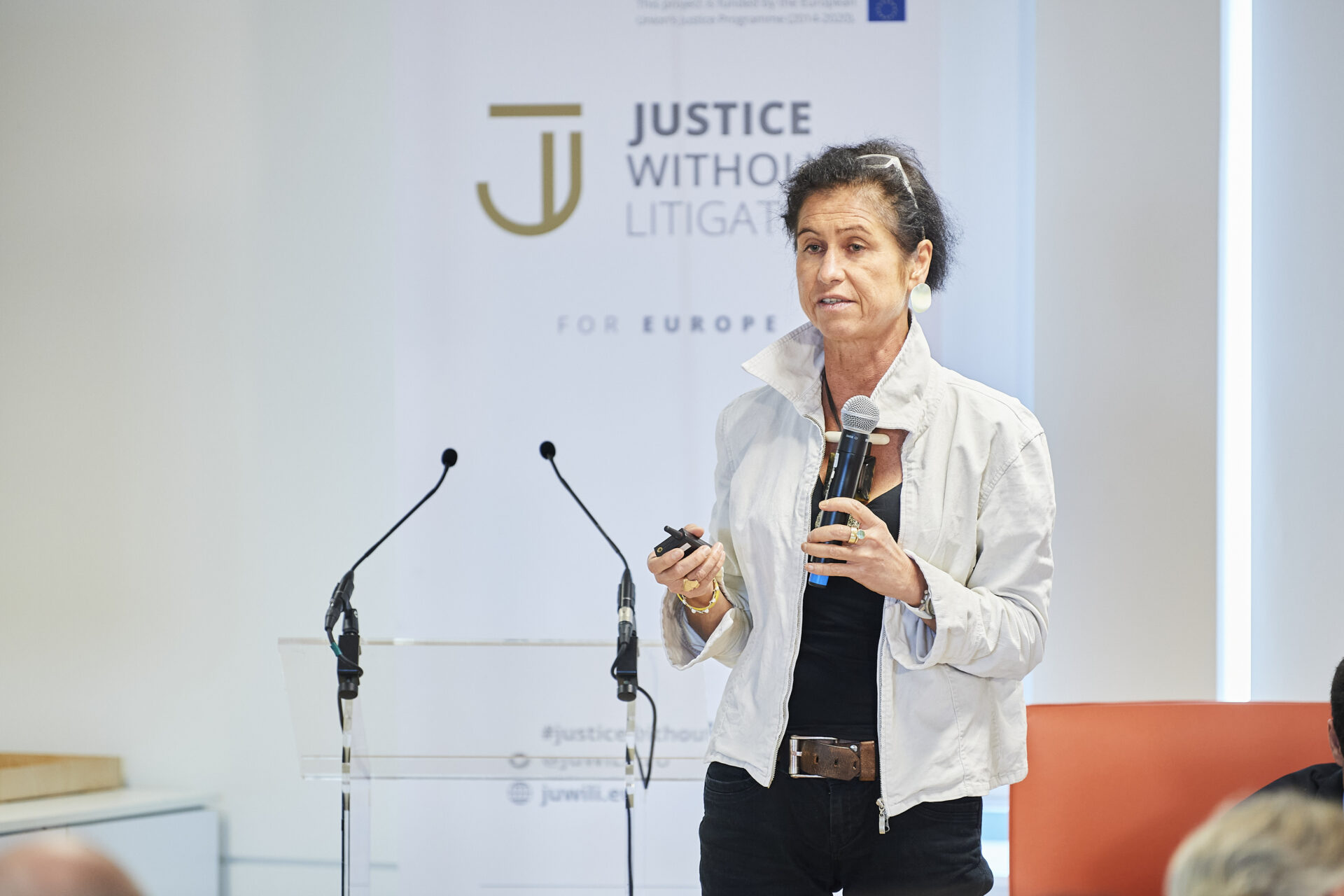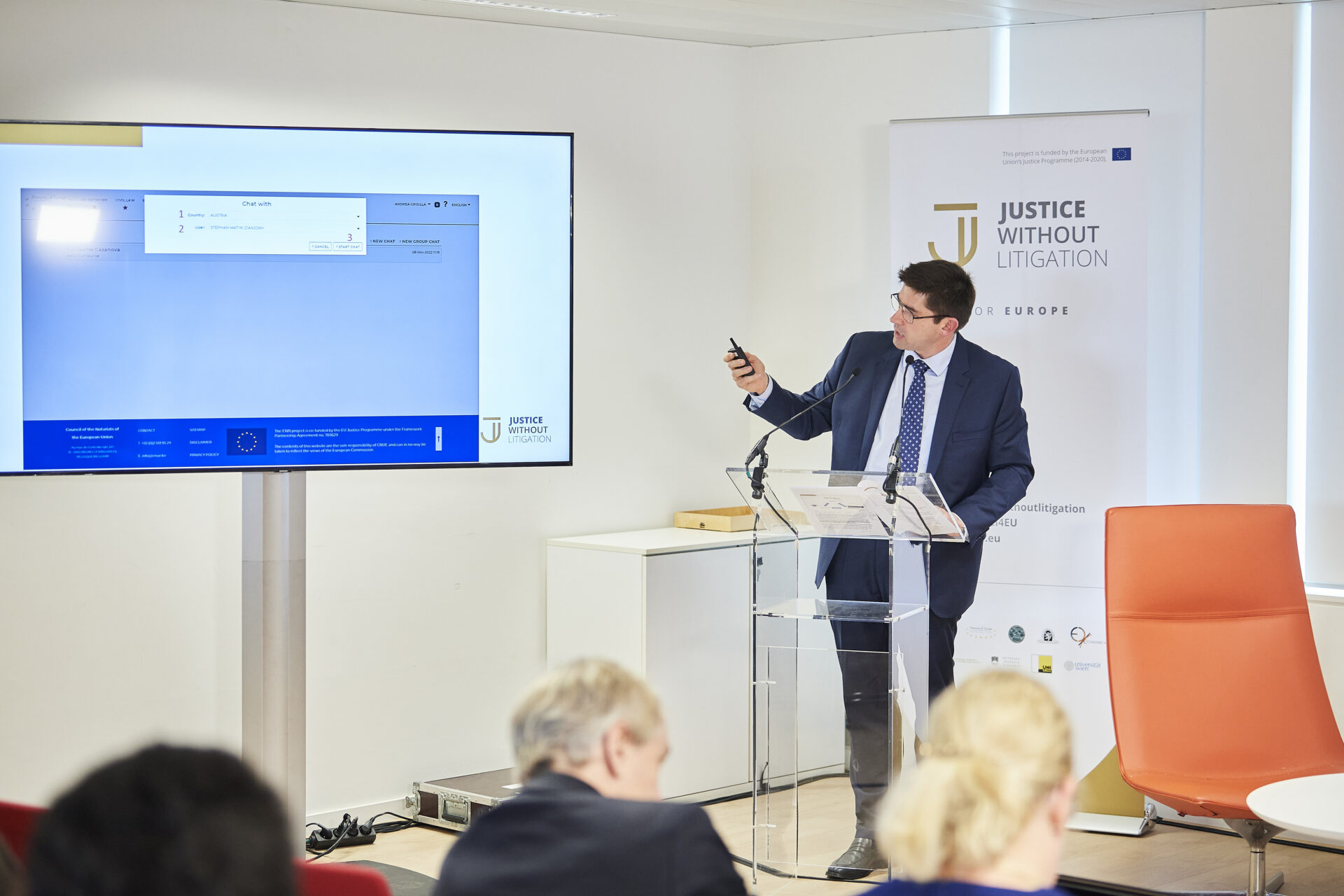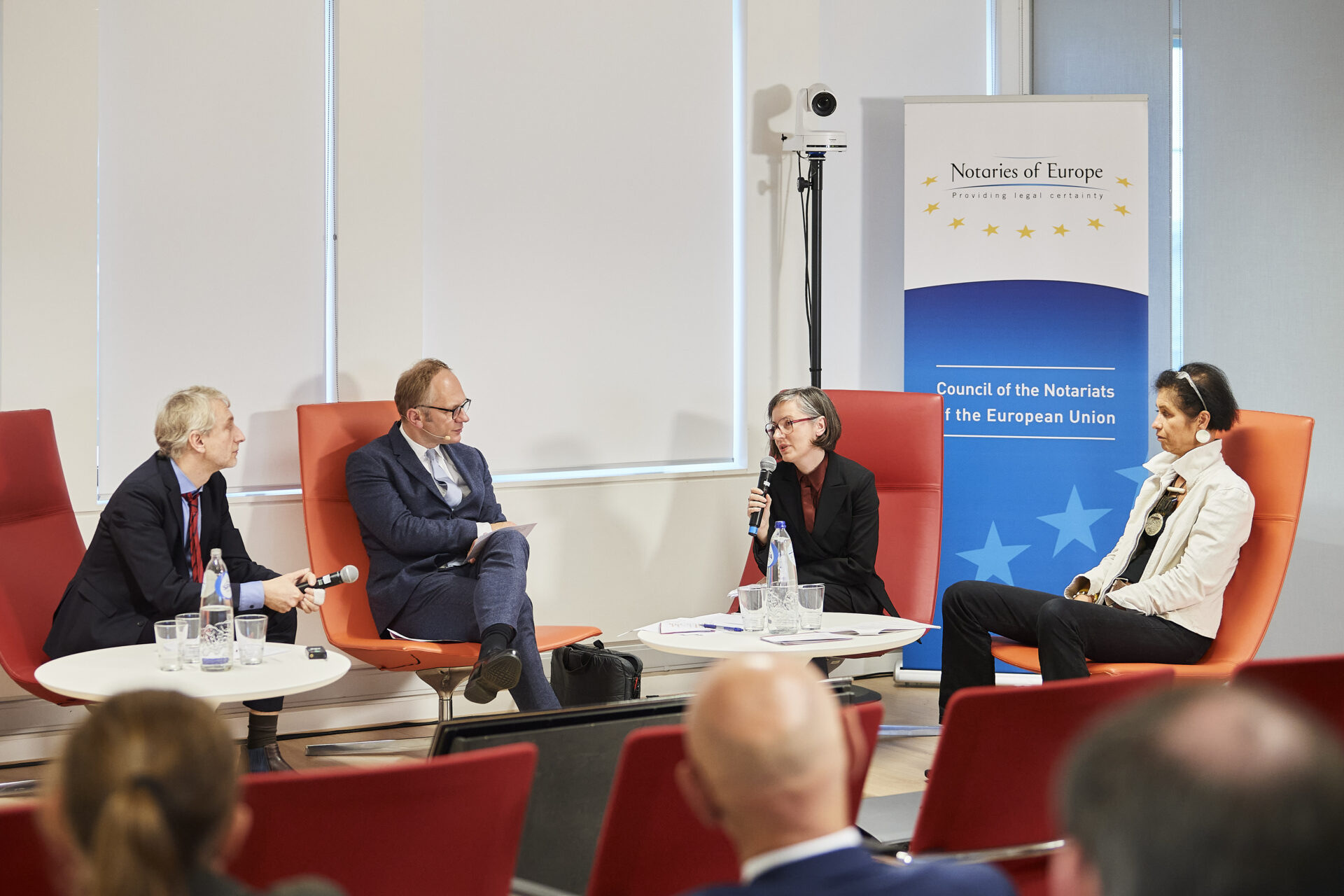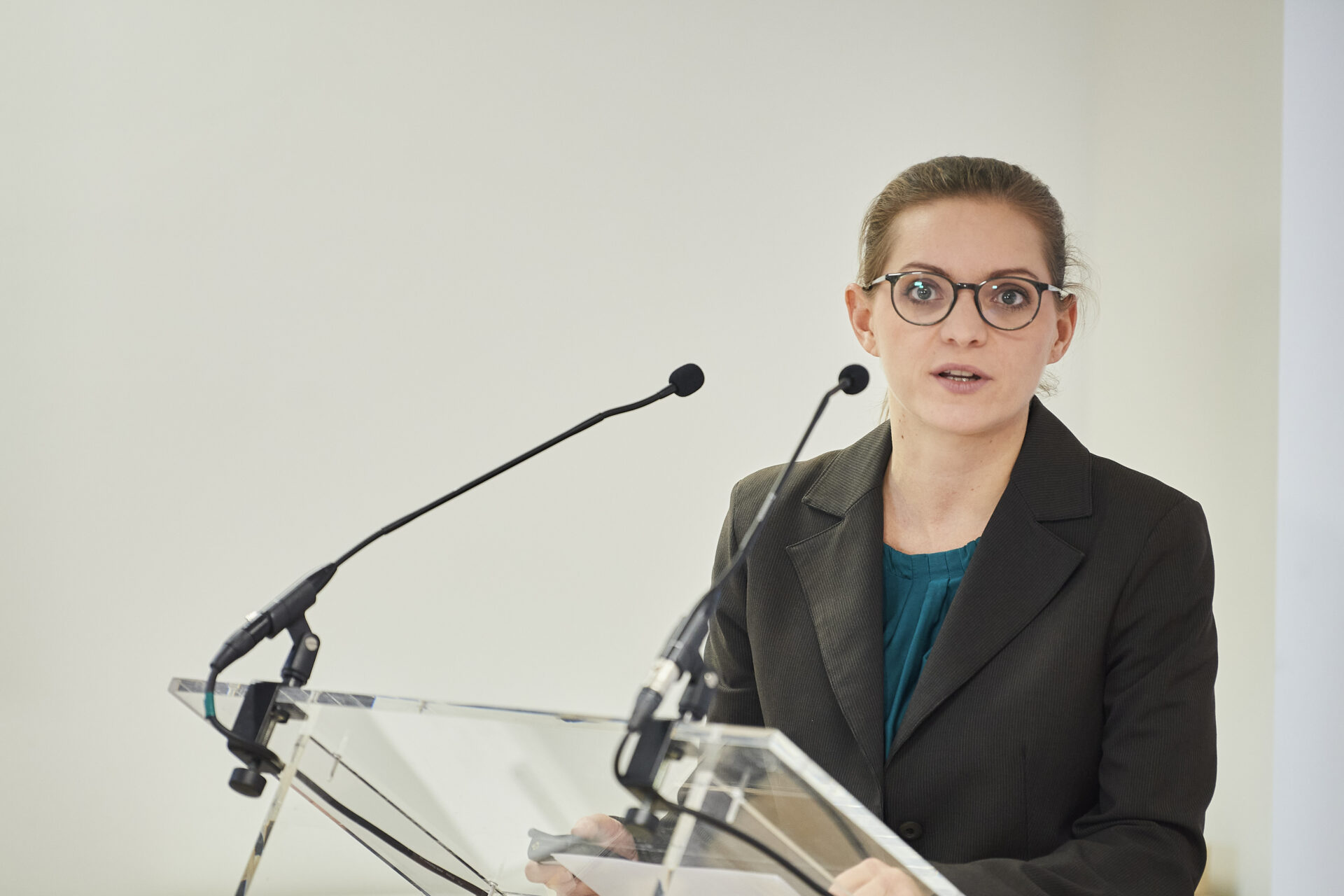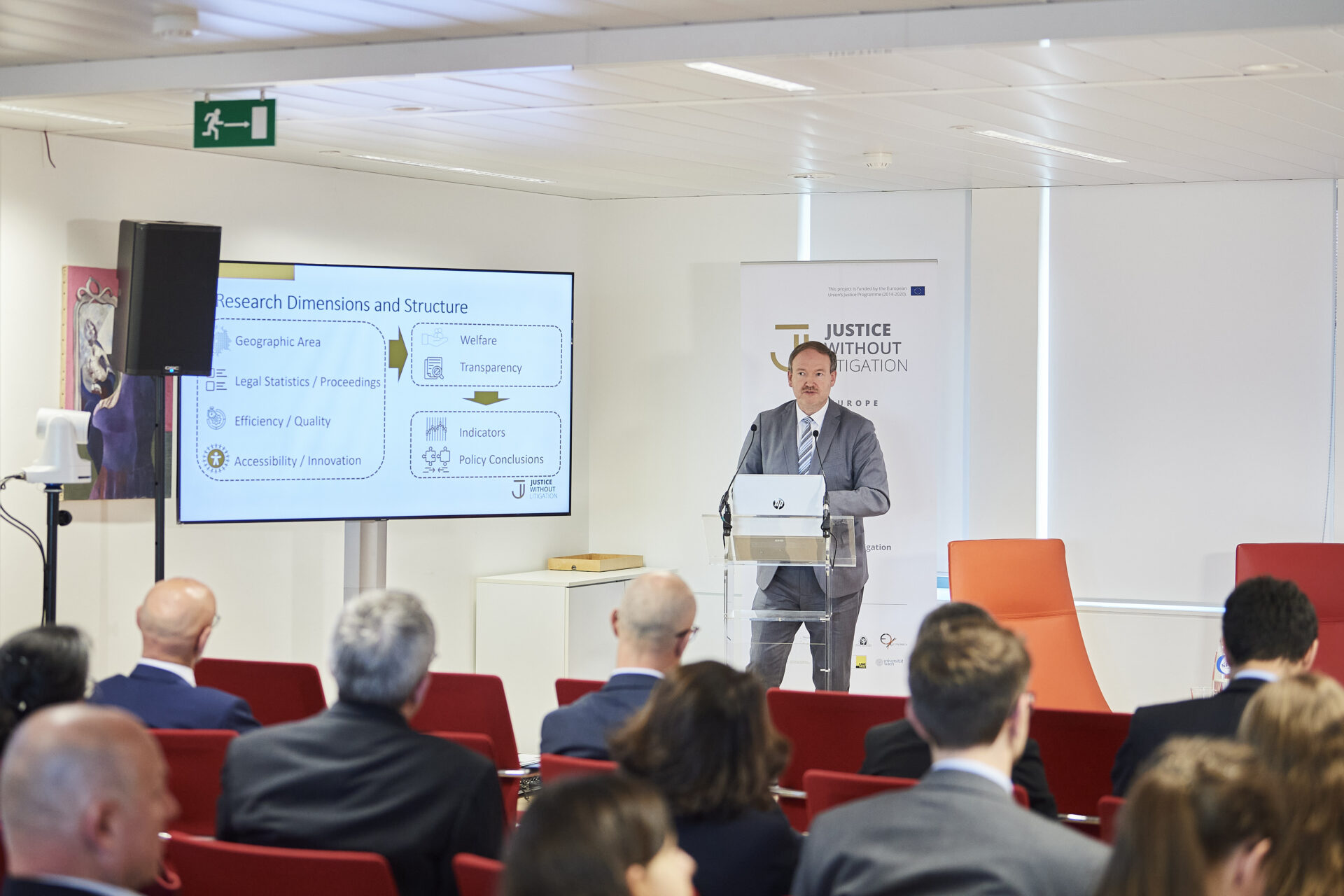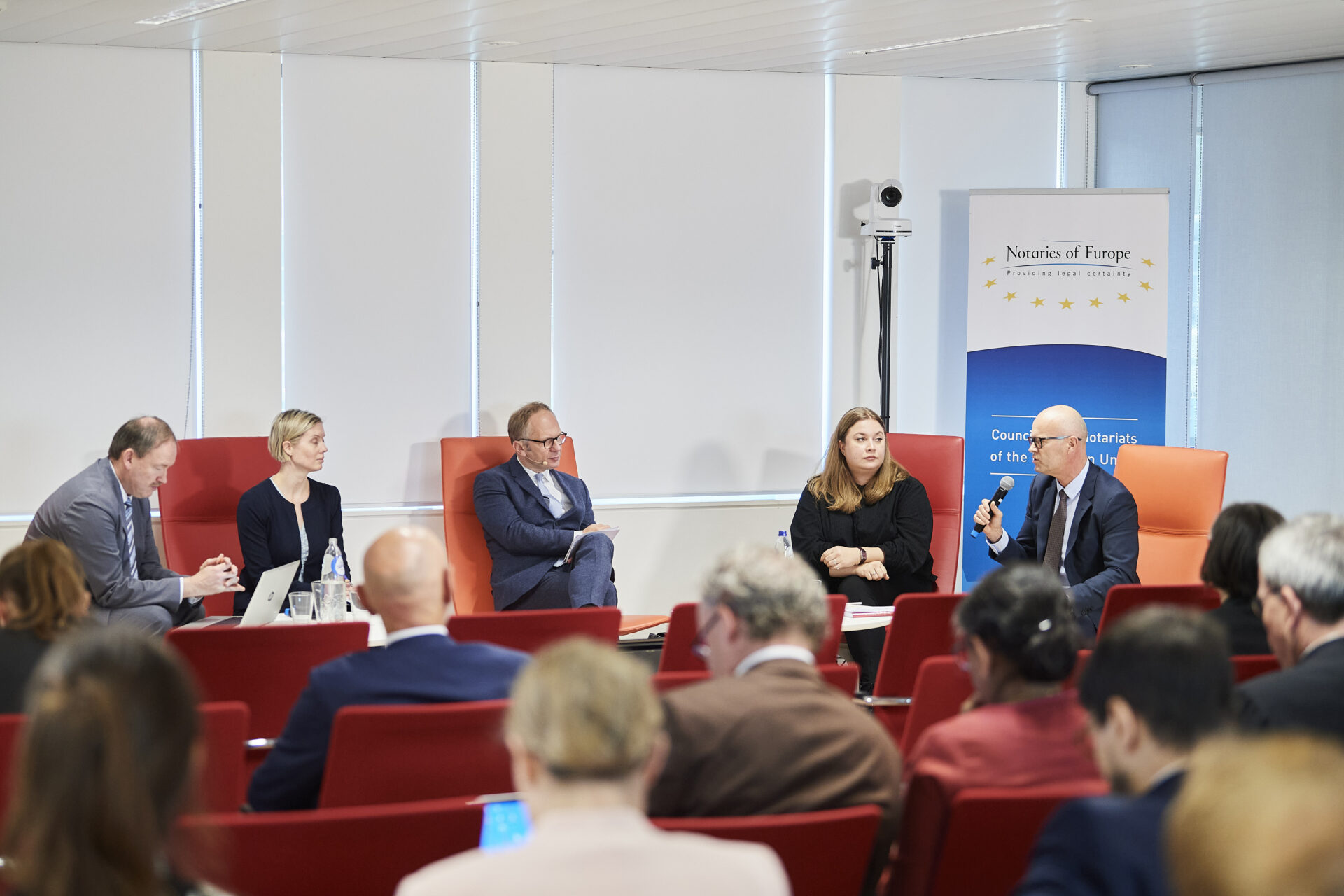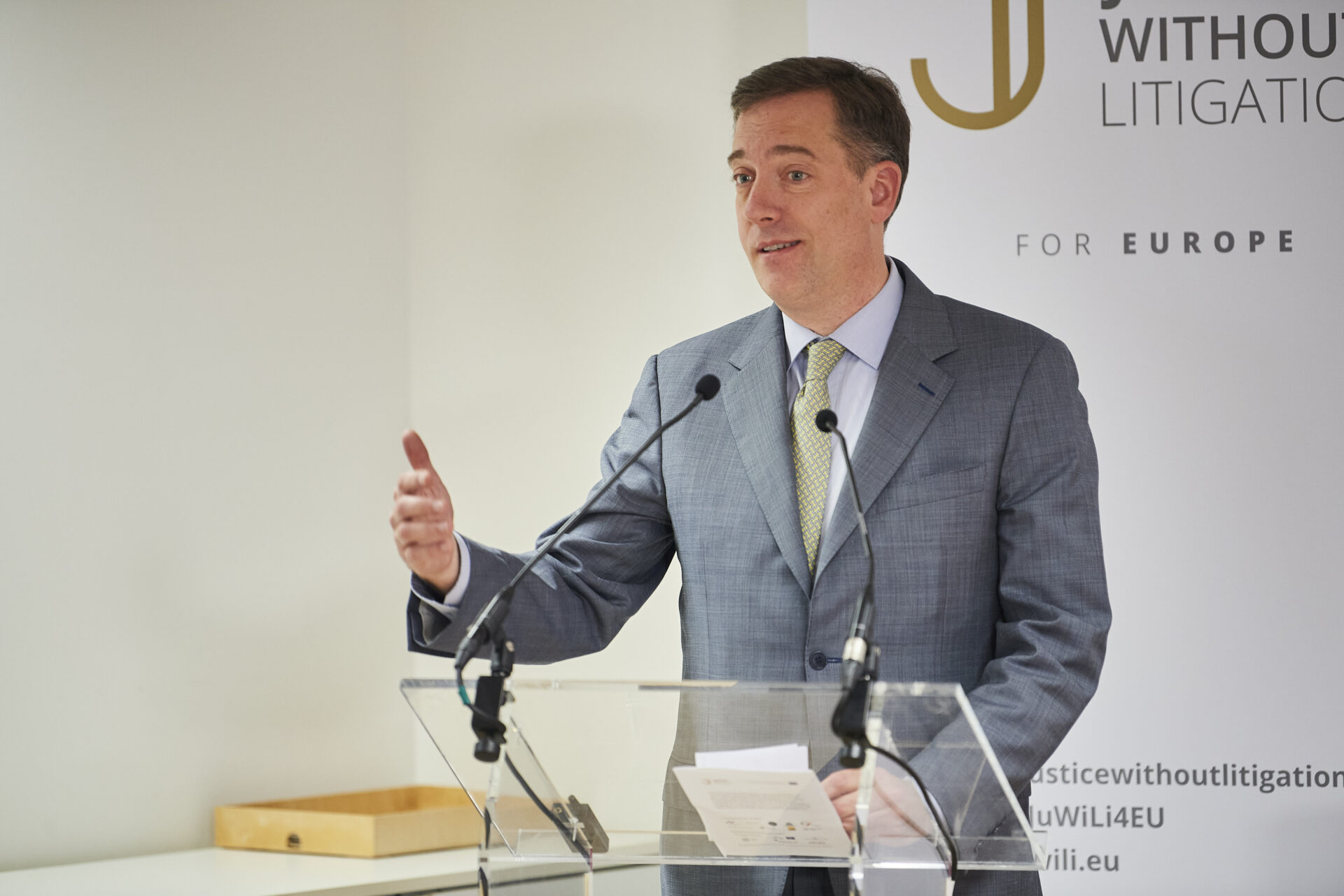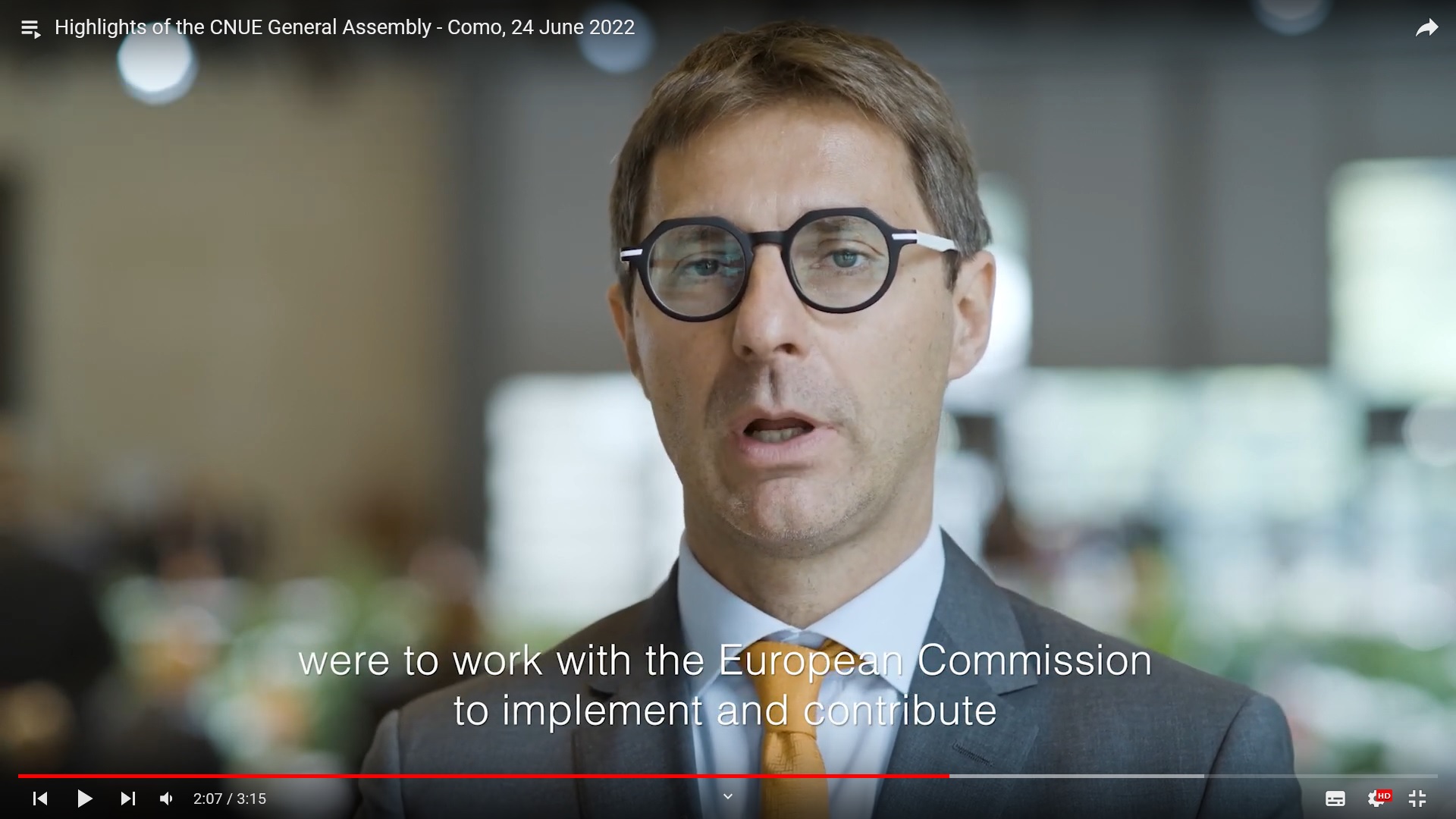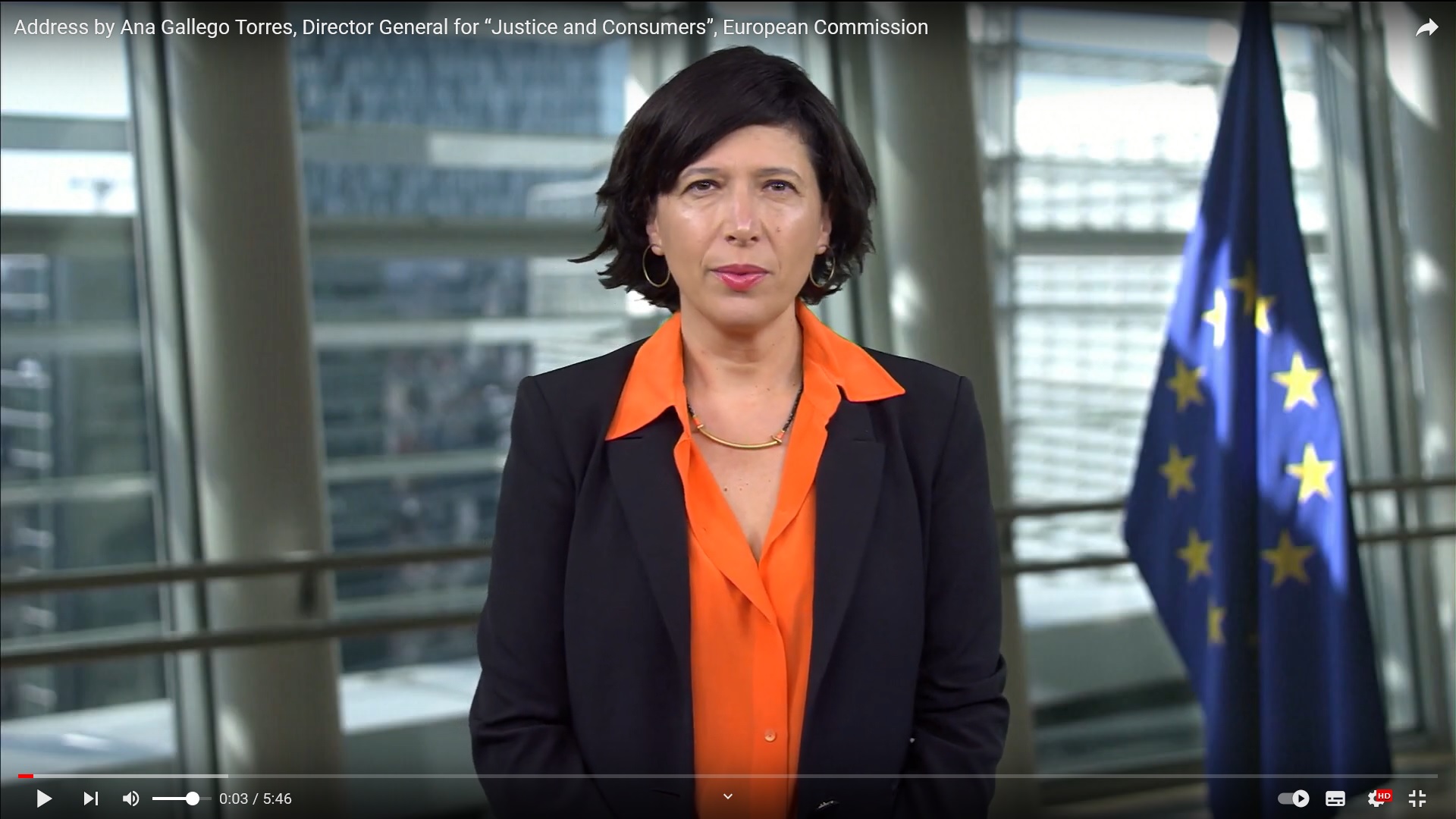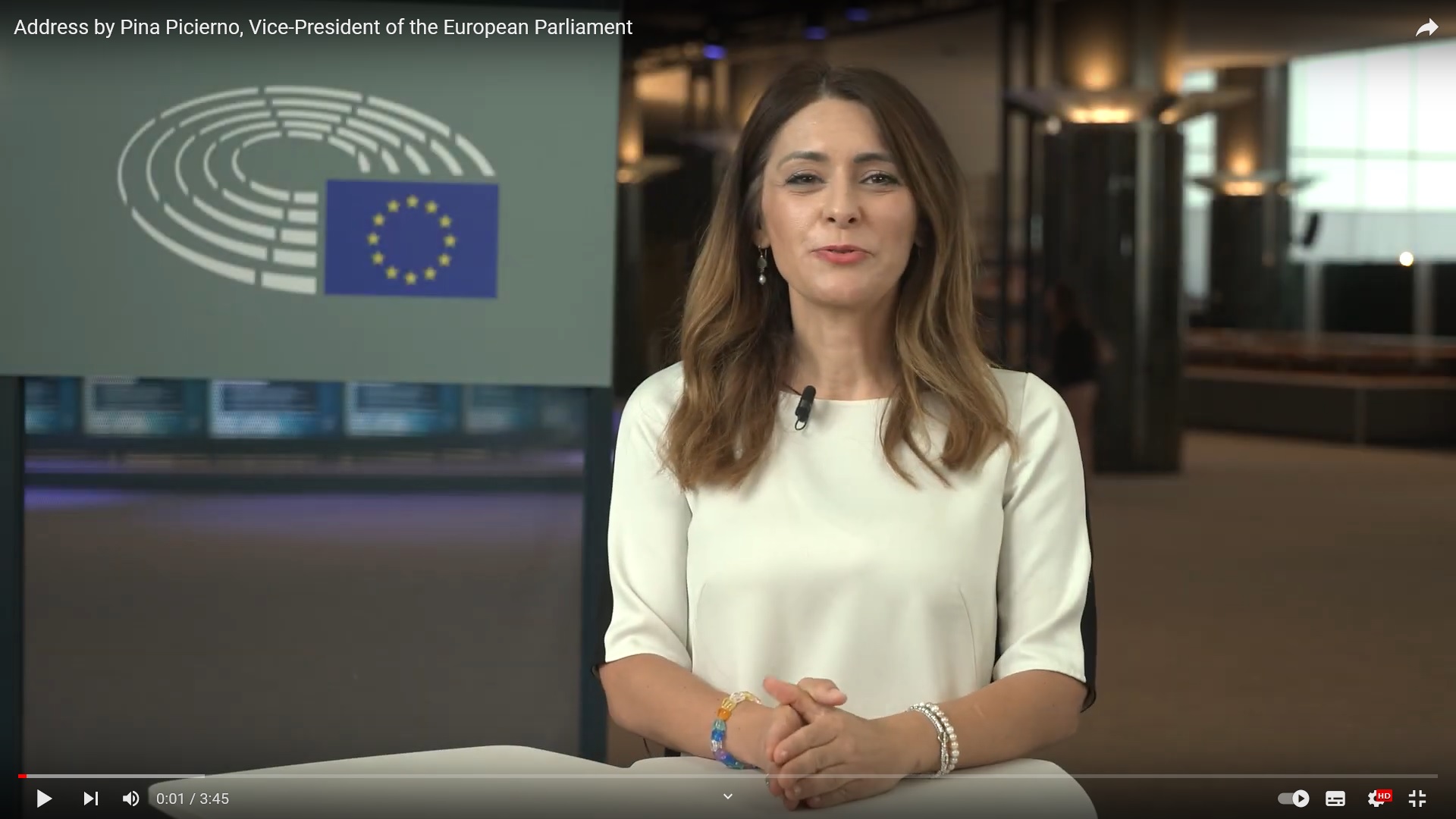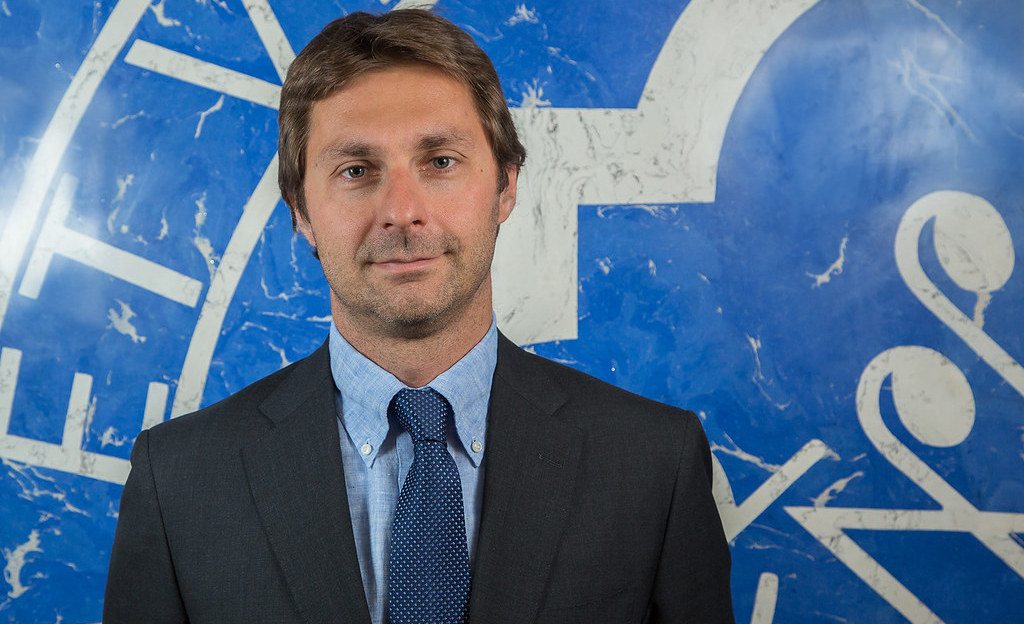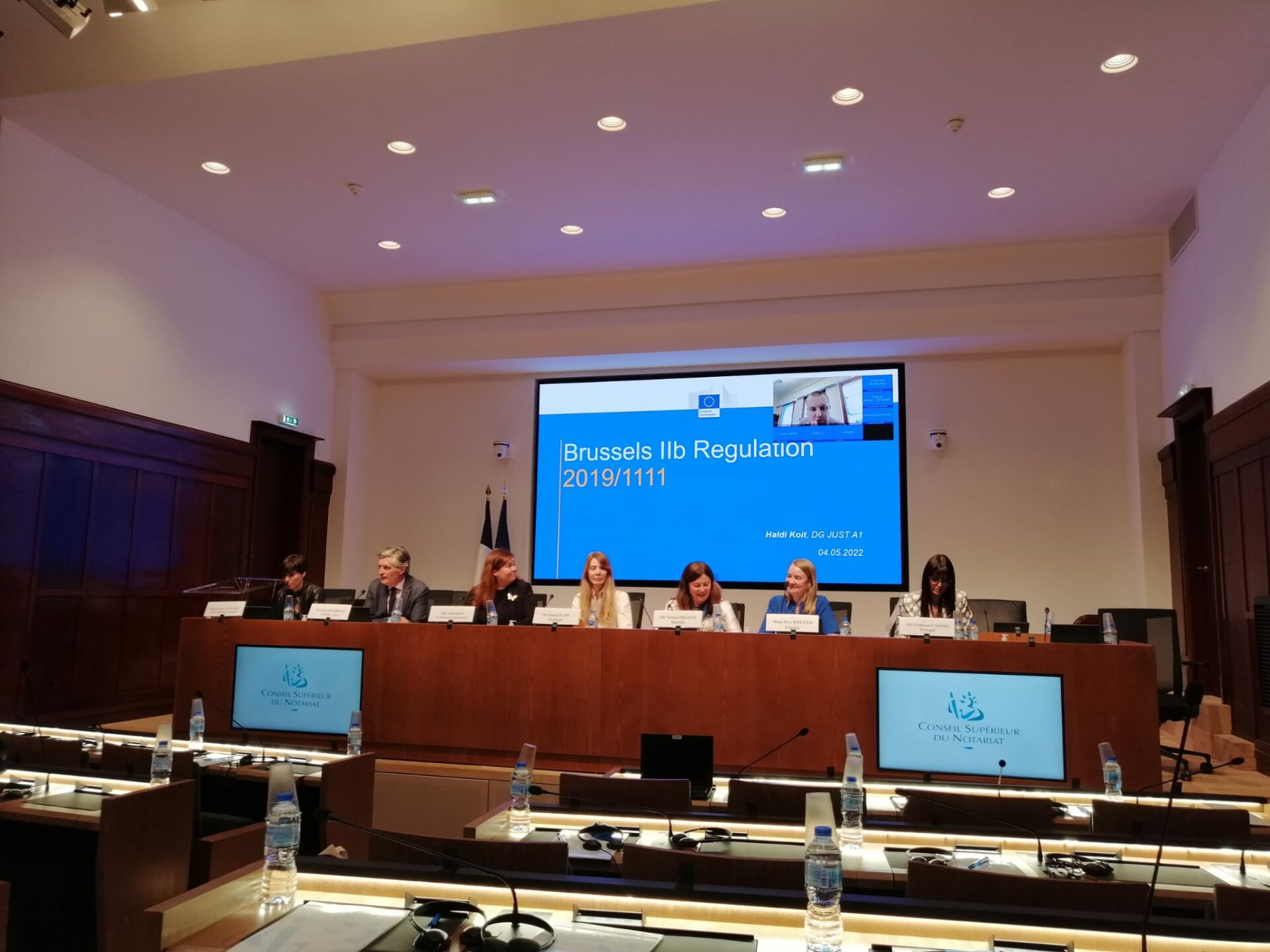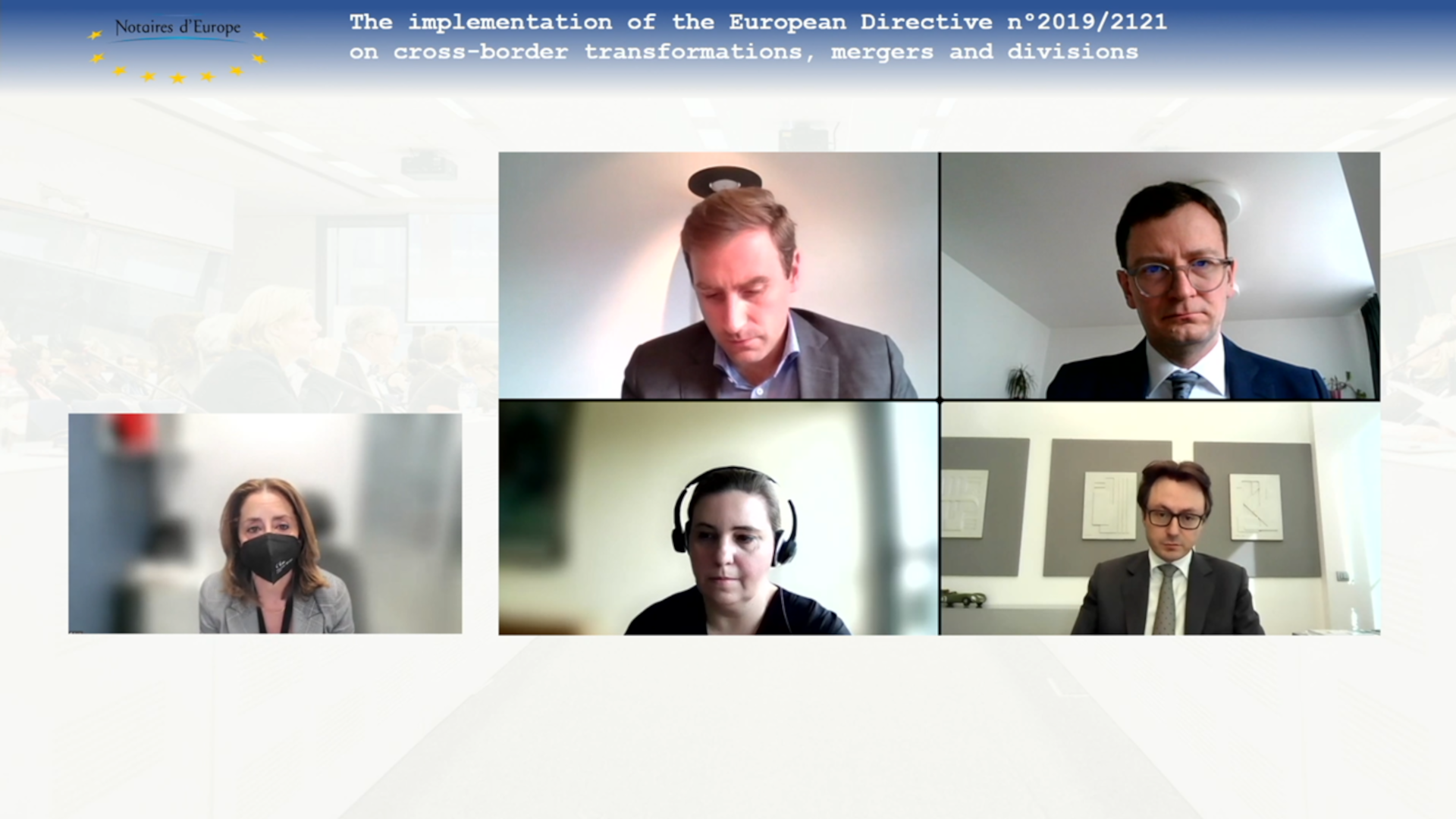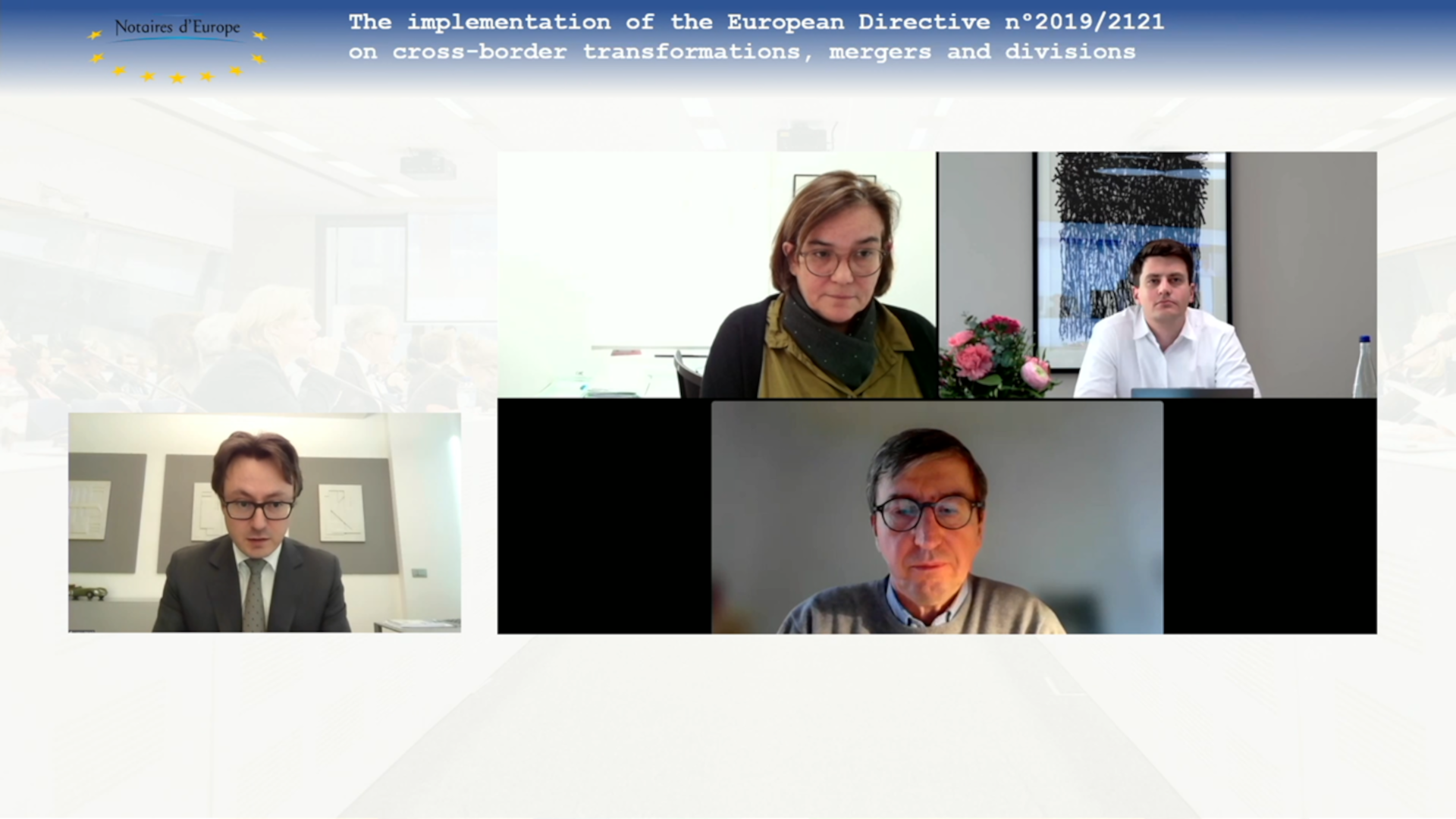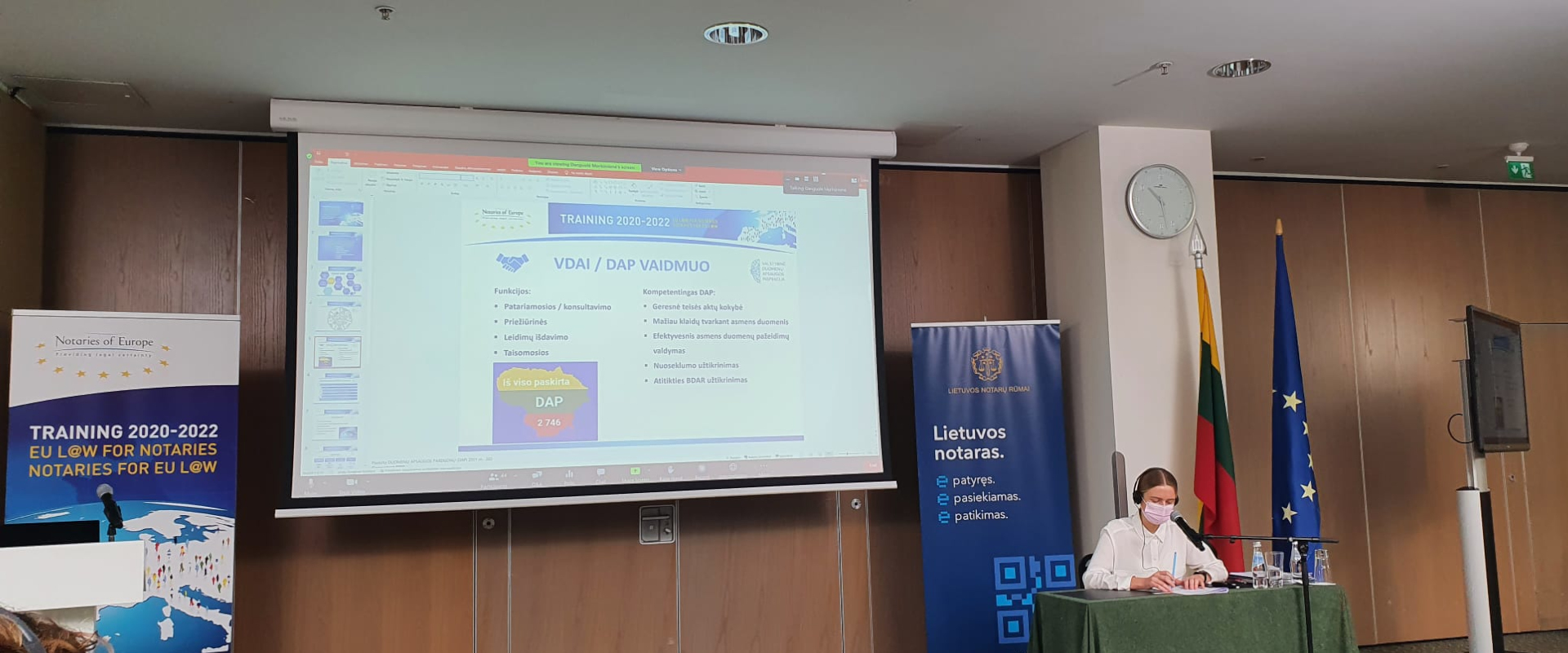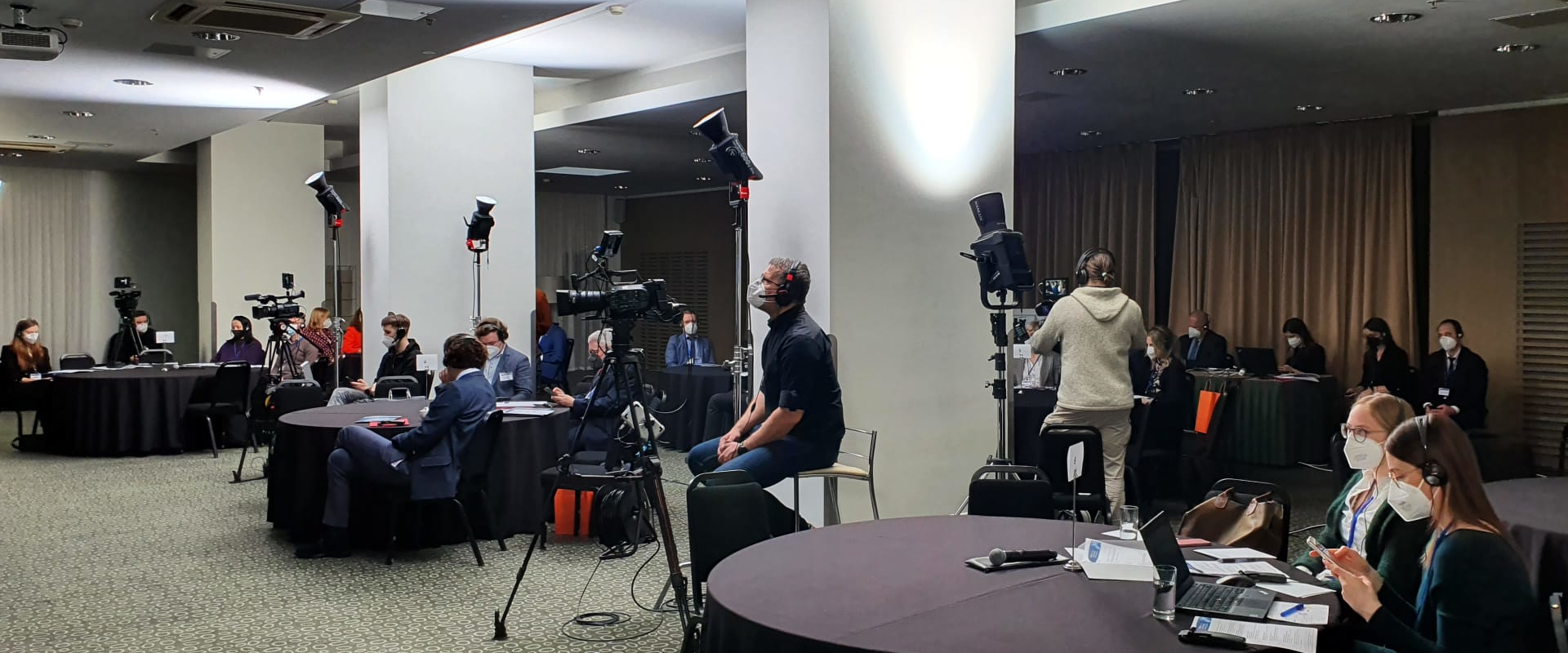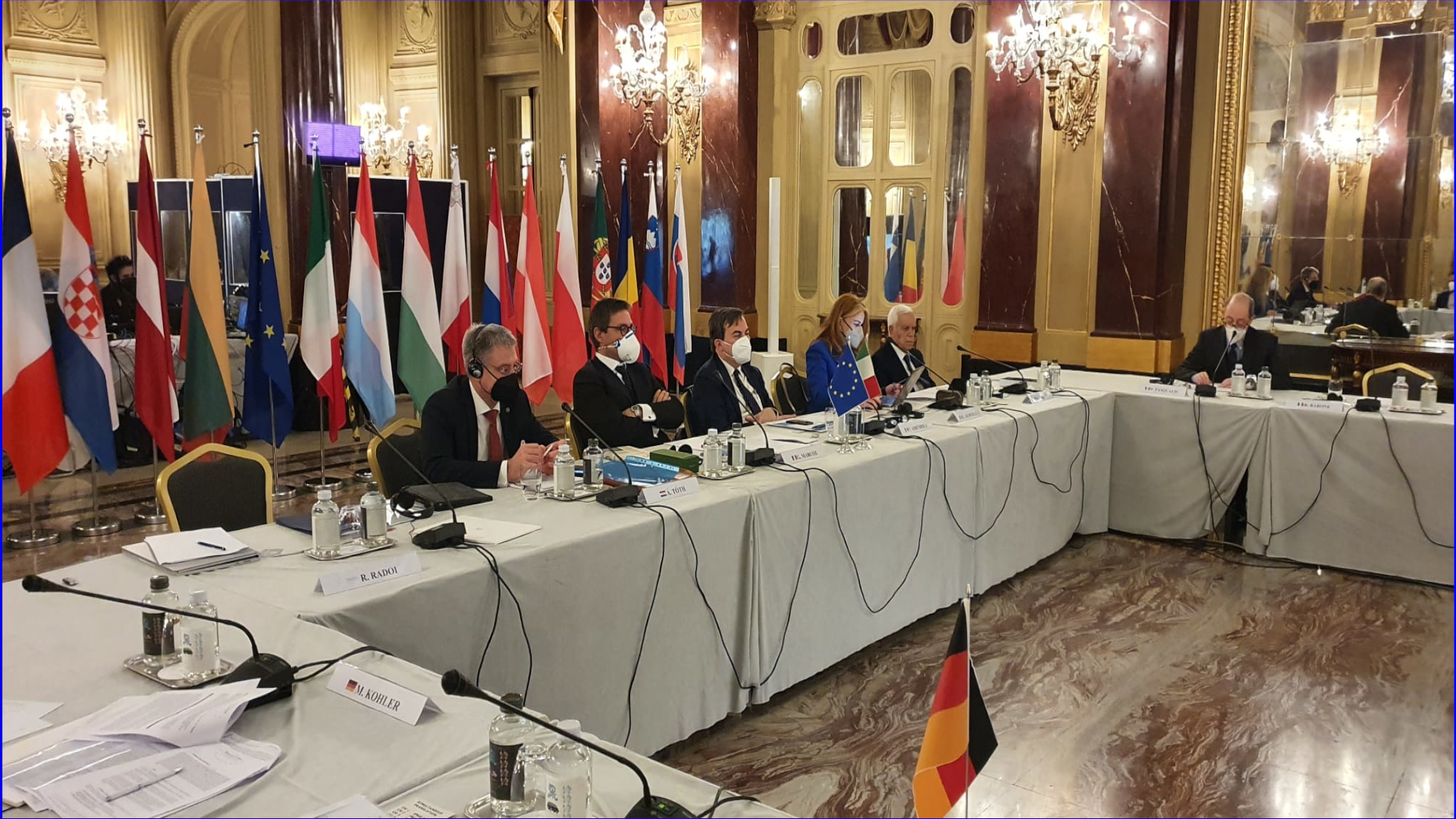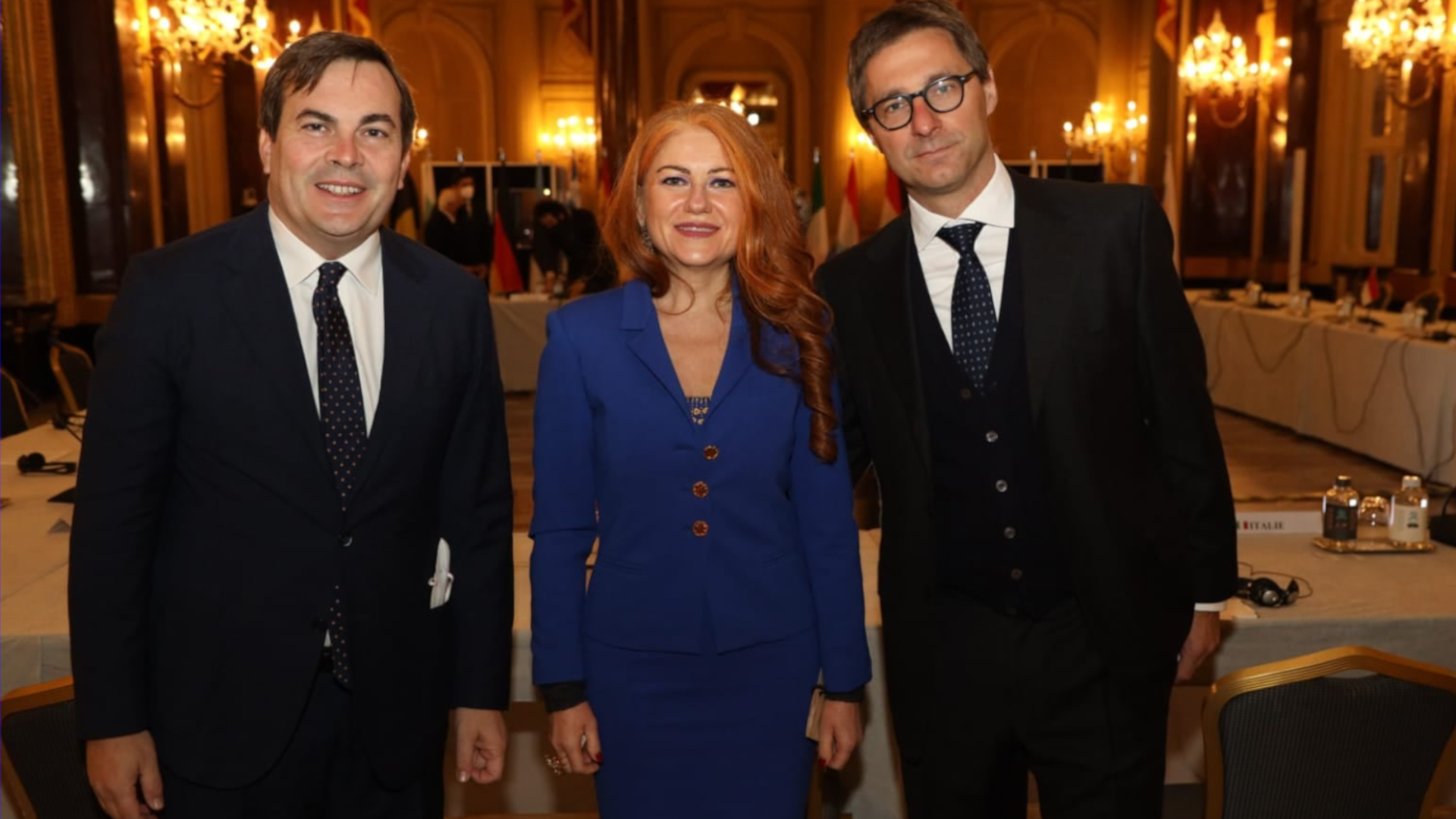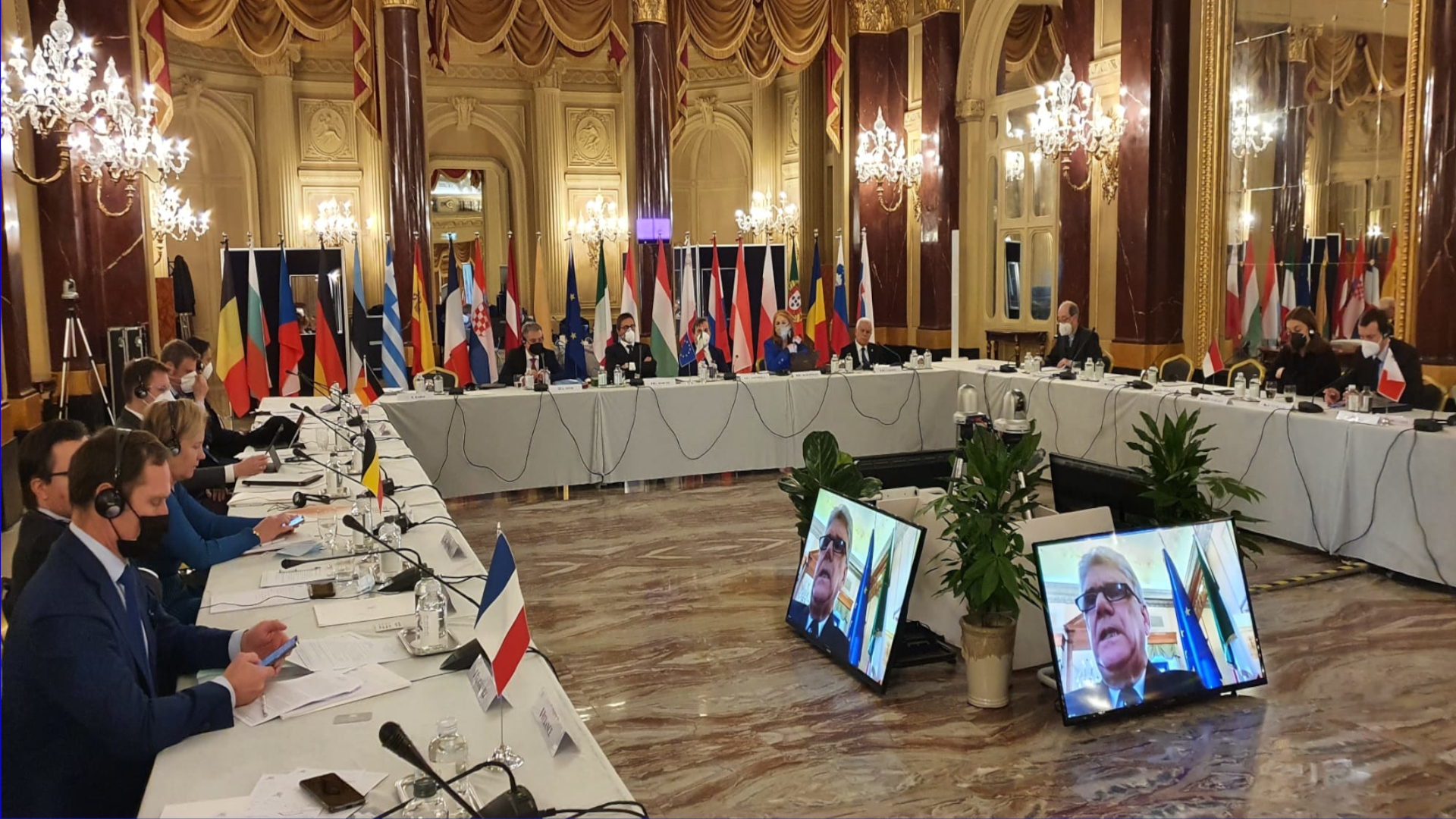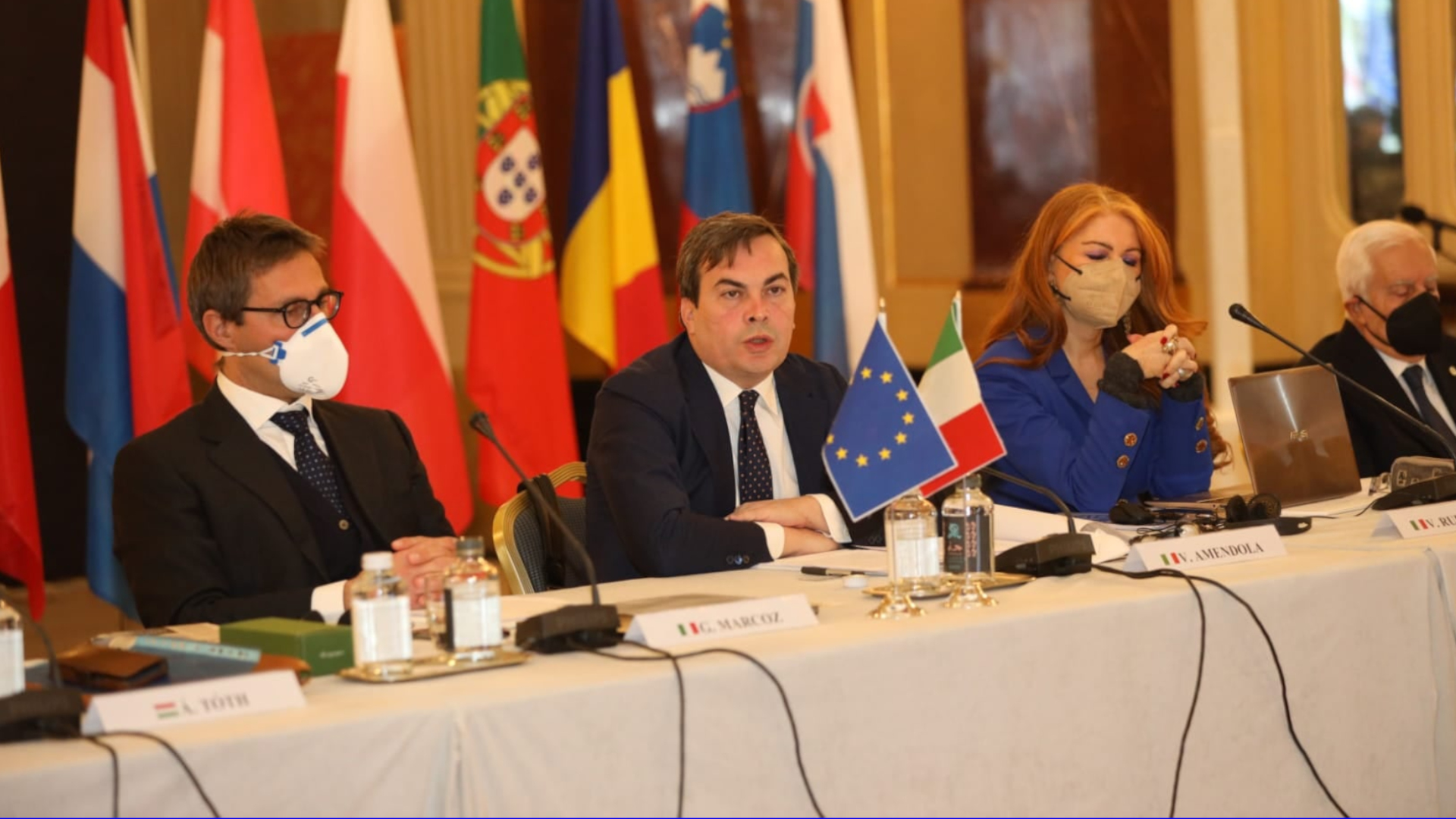News CNUE, 14 December 2022
“Couples in Europe” website gets a makeover
–
In 2022, as part of the European Notarial Network’s work programme, the “Couples in Europe” website underwent a graphic redesign. The site provides the general public with information sheets on the law of 22 European Union Member States and, for the first time, Ukraine.
What are the consequences of a divorce or separation with regard to the matrimonial regime? Which law applies to a couple’s property? What does the law provide for the property of registered or unregistered partners? What are the consequences of death with regard to the matrimonial property regime? The website www.coupleseurope.eu provides answers to all these questions. Available in 19 languages, the content is regularly updated to reflect European and national legislative developments.
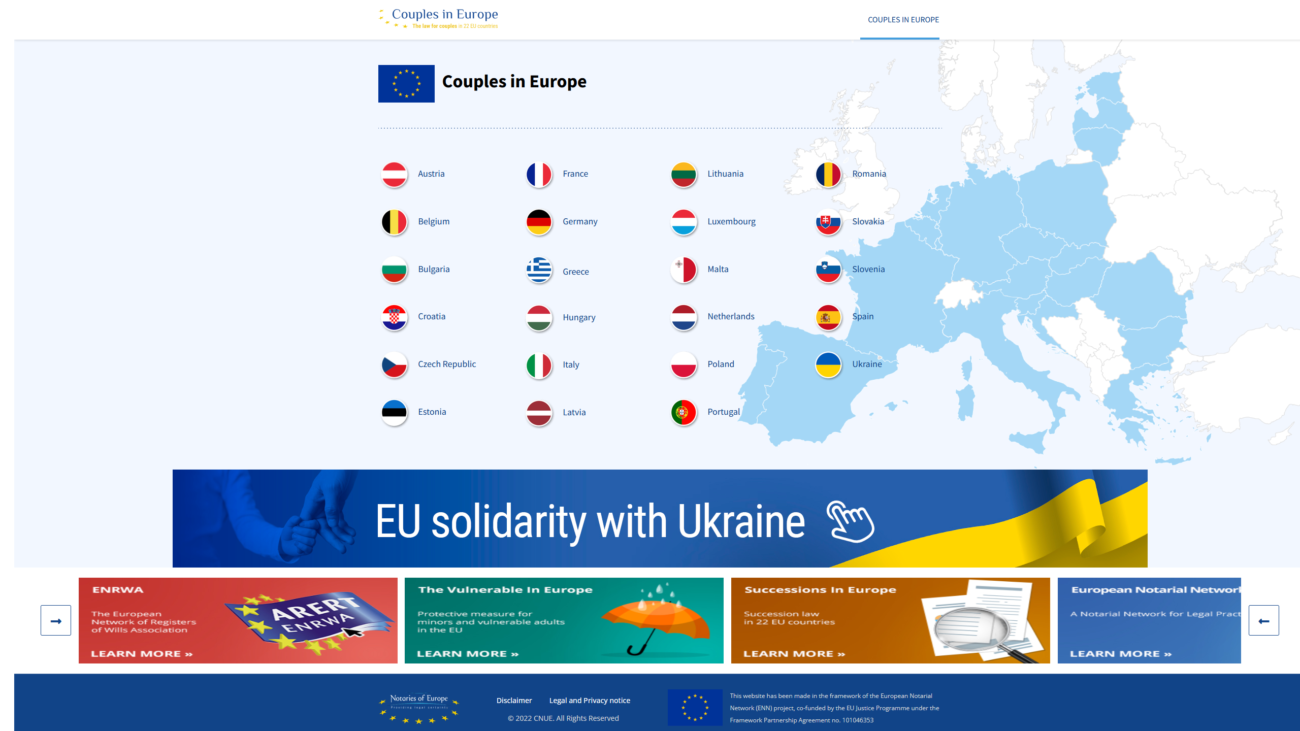
News CNUE, 12 December 2022
CNUE General Assembly – 8-9 December, Brussels
–
The Council of the Notariats of the European Union held its last general assembly of the year on 8 and 9 December in Brussels. It was an opportunity for the Italian Presidency of the CNUE to present a first assessment of the results of the past year and also for all the participants from the 22 European notariats to elect a new President for the year 2023.
The General Assembly began on the evening of 8 December with a presentation of the projects devised by the teams of the 1st edition of the Notaries of Europe Hackathon held in Rome on 21 and 22 November 2022. The ideas were numerous and inspiring: a secure online tool for exchanges with clients, exchange of information to fight against money laundering, an application to verify the identity of a foreign notary, etc.
Following these presentations, the projects carried out by the CNUE in partnership with the European Commission were highlighted: the development of the European Notarial Network, the programme of training seminars for European notaries and the creation of a practical handbook on Ukrainian law for notaries. In this context, the launch of an online training platform and the redesign of the “Couples in Europe” website were announced.
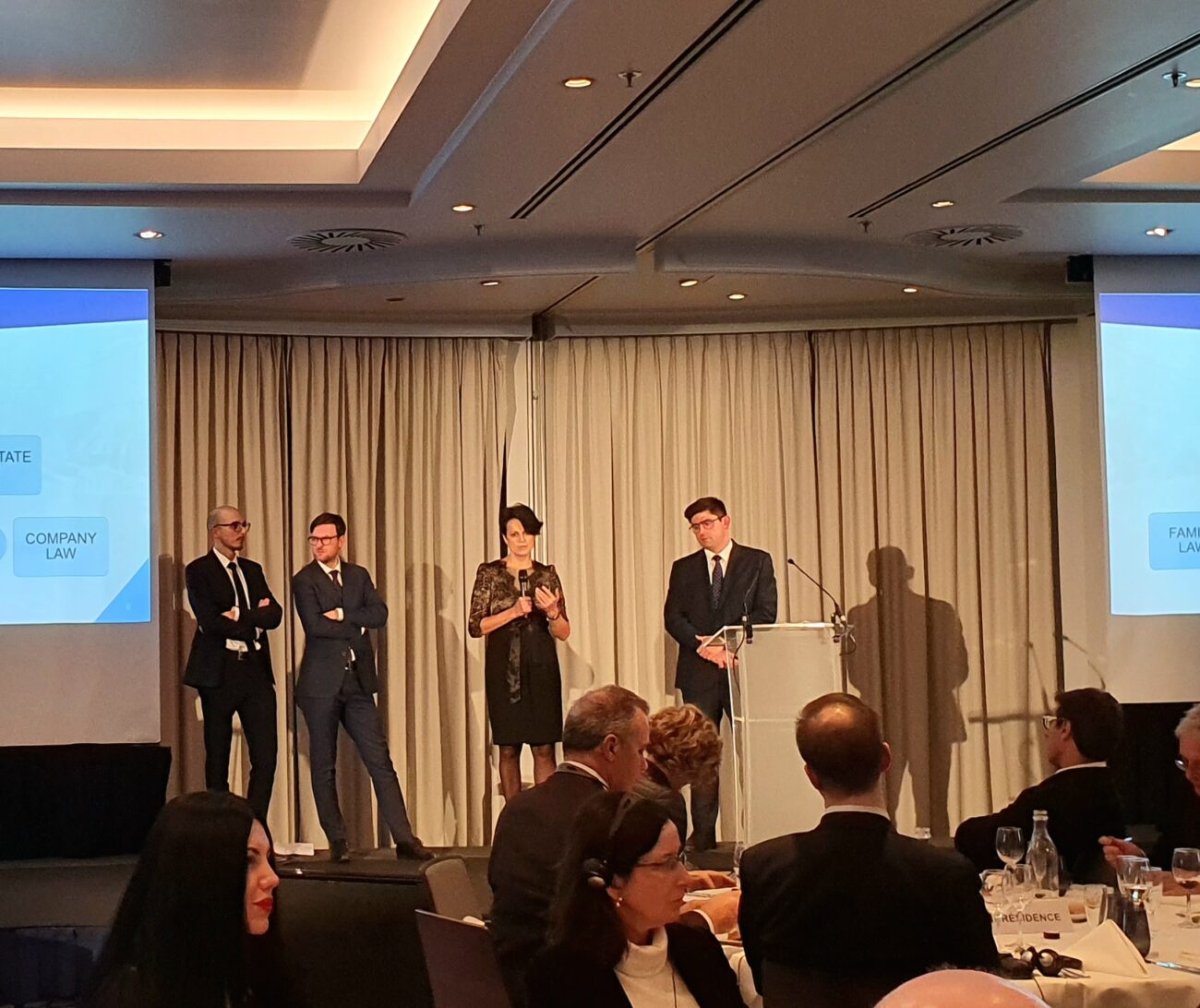
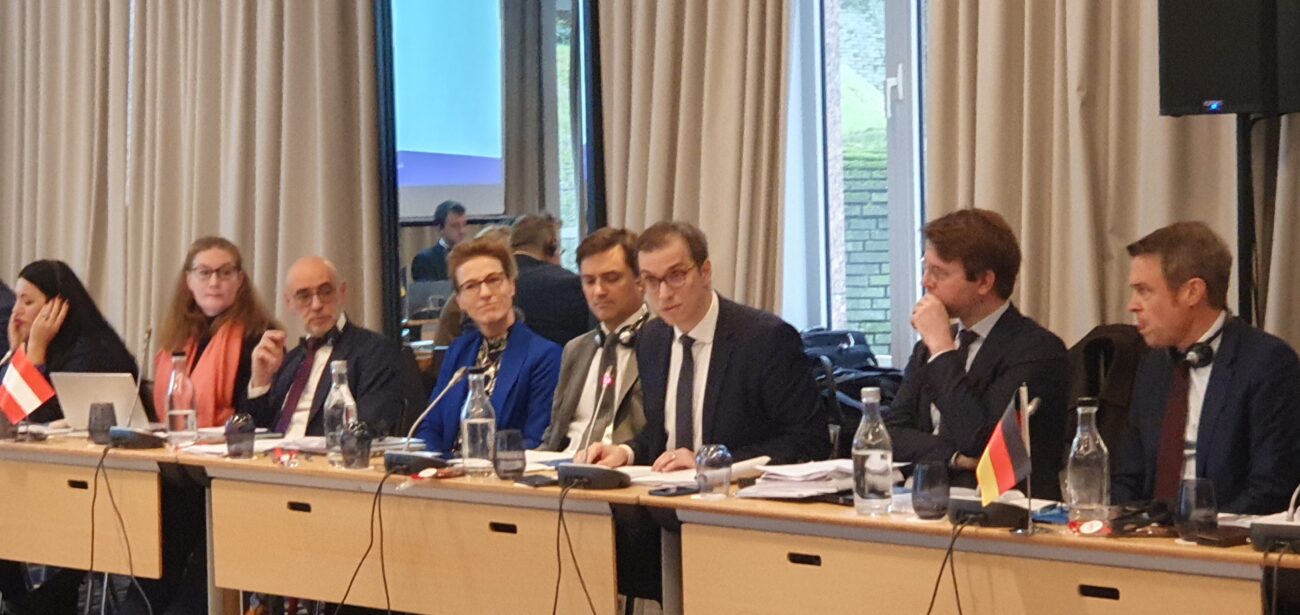
The following day, the participants met for one of the strong institutional moments of the CNUE: the election of the President, the Vice-President and the Board of Directors for the year 2023. The German notary Peter Stelmaszczyk was unanimously elected as President. The President of the Lithuanian Chamber of Notaries, Marius Stračkaitis, was also unanimously elected as Vice-President.
In his inaugural speech, Peter Stelmaszczyk outlined the priorities of the notariat for the coming year, particularly in view of the European elections in 2024: the anti-money laundering legislative package, the digitalisation of the profession with the prospect of a new European initiative in the field of company law, the protection of the vulnerable and here again a legislative proposal is expected next year, and finally the support for Ukraine and its reconstruction.
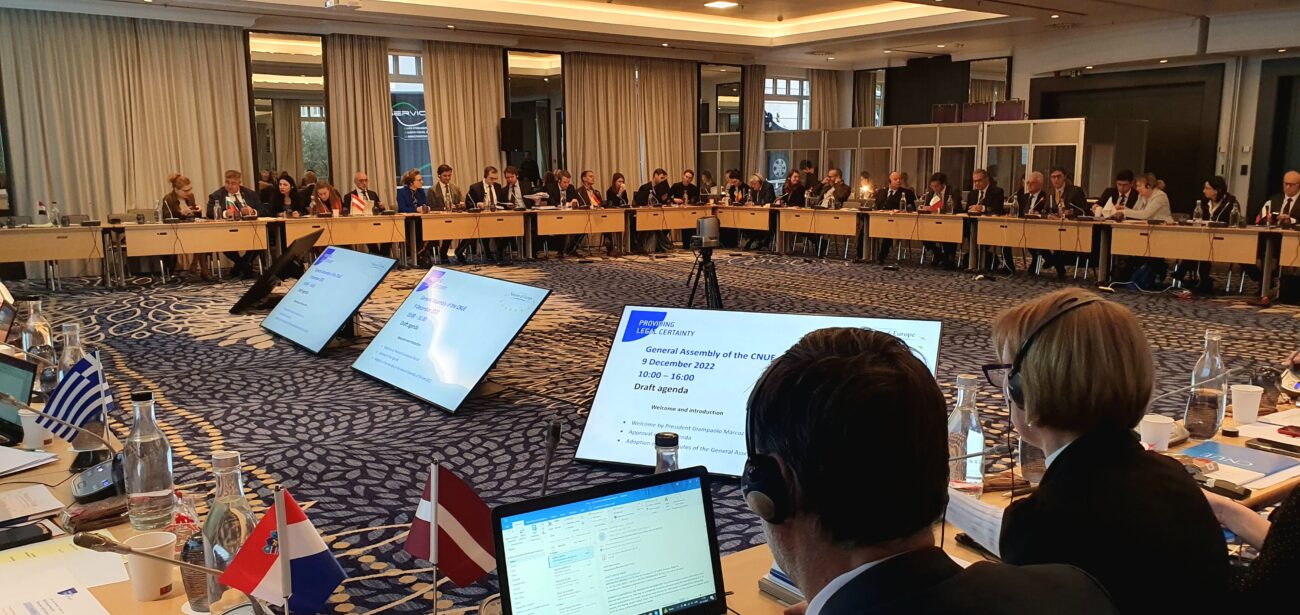
News CNUE, 1 December 2022
Election of Mr. Lionel Galliez as President of the International Union of Notaries
–
Mr Lionel Galliez, a notary in Paris, was elected President of the International Union of Notaries (UINL) at the General Assembly of the organisation held in Cancun, Mexico. Lionel Galliez will officially take office on 1 January 2023 for a three-year term. During his term of office, he aims to:
- defend the specificity of the notarial model and the diversity of our legal systems;
- extend and deepen the competences of member notariats of the European Union;
- establish a foundation of doctrine to strengthen the Union’s action.
Mr Lionel Galliez, 52, has been a notary since 1999 in Mussidan and then in Paris. From 2016 to 2022, he was Counsellor of the President of the Conseil Supérieur du Notariat for international affairs and, in 2011, Chairman of the Commission of the 107th Congress of Notaries of France. From 2020 to 2022, he was Vice-President of the UINL for Europe and, since 2014, General Councillor (France) and Chairman of the Working Group on Partnership with International Organisations. Mr Lionel Galliez was the President of the 28th International Congress of Notariat held in Paris in 2016, and he was also the delegate of the Conseil Supérieur du Notariat to the United Nations and the World Bank between 2010 and 2022. He won the Ducret Prize for the report on the 26th Congress and he was also a member of the FAO Committee of Experts for the Voluntary Guidelines on the Responsible Governance of Tenure of Land from 2010 to 2012, rapporteur for the French Notariat of the 26th World Congress of Notaries in Marrakech in 2010 and finally, expert for the European Union to the Ministries of Justice of Lebanon, Vietnam and Tunisia from 2008 to 2010.
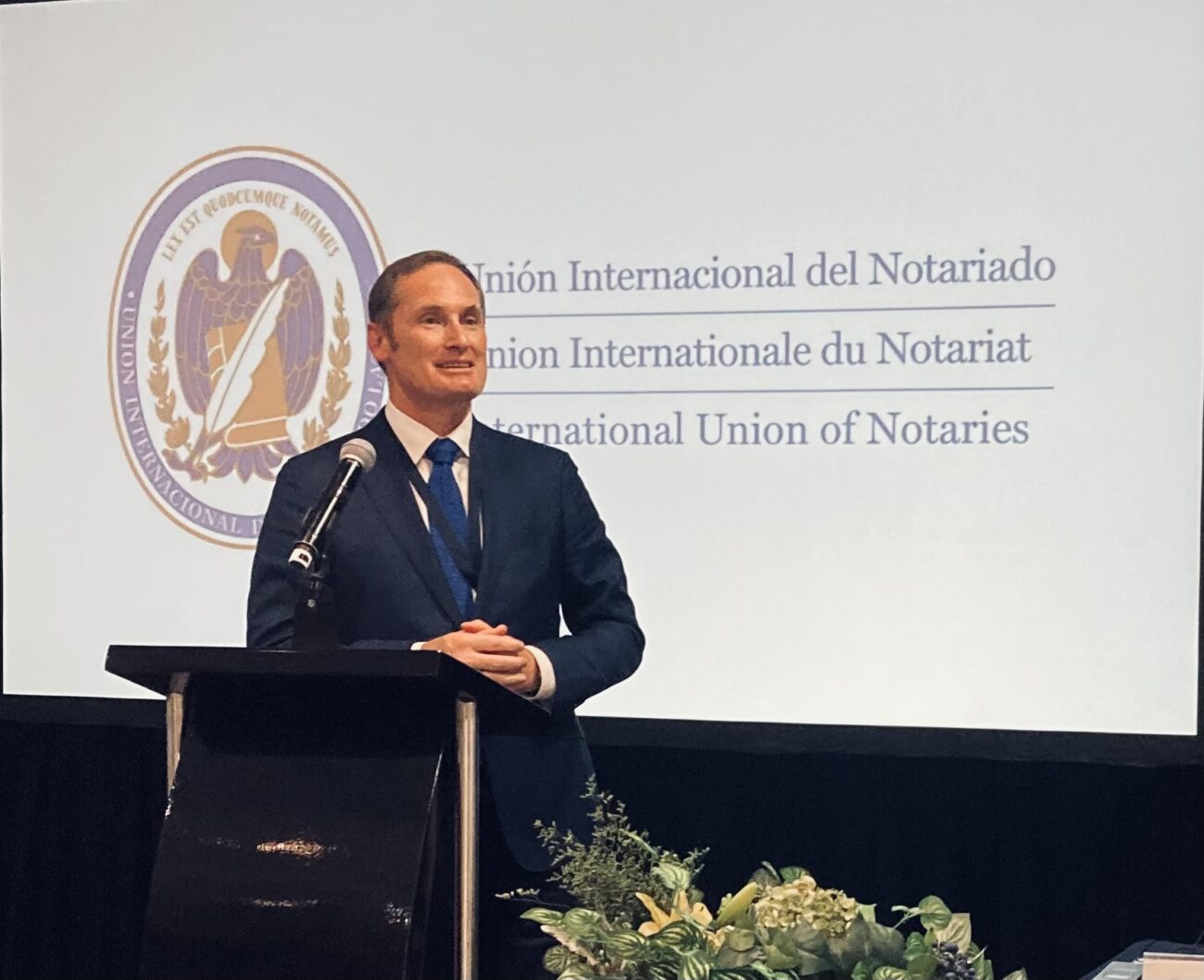
About the International Union of Notaries (UINL)
The International Union of Notaries is an international non-governmental organisation, created to promote, coordinate and develop the function and activities of notaries throughout the world. Formed by 19 countries at the time of its establishment in 1949, It now includes 91 members, of which 22 out of the 28 members of the European Union and 14 out of the 19 of the G20. The Union accounts for about two-thirds of the planet’s population.
https://www.uinl.org/
News Members, 28 November 2022
Czech notariat’s online company formation system awarded
–
On 21 November, the system of the Council of Notaries of the Czech Republic for the online creation of business companies won first place in the “eGovernment The Best 2022” competition, in the category of central projects.
EGovernment The Best is a competition that has been organised by the Czech magazine “eGovernment“ for the past 17 years, collecting inspiring projects in the field of public administration digitalisation. In total, more than 40 projects were entered in three categories (municipal, regional and central systems).
The online incorporation system for business companies was launched in September 2021 and has been used by 1,000 companies for their creation or for adjustments to their structure.
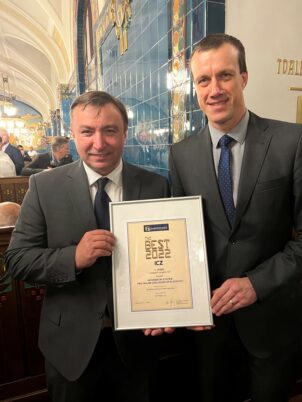
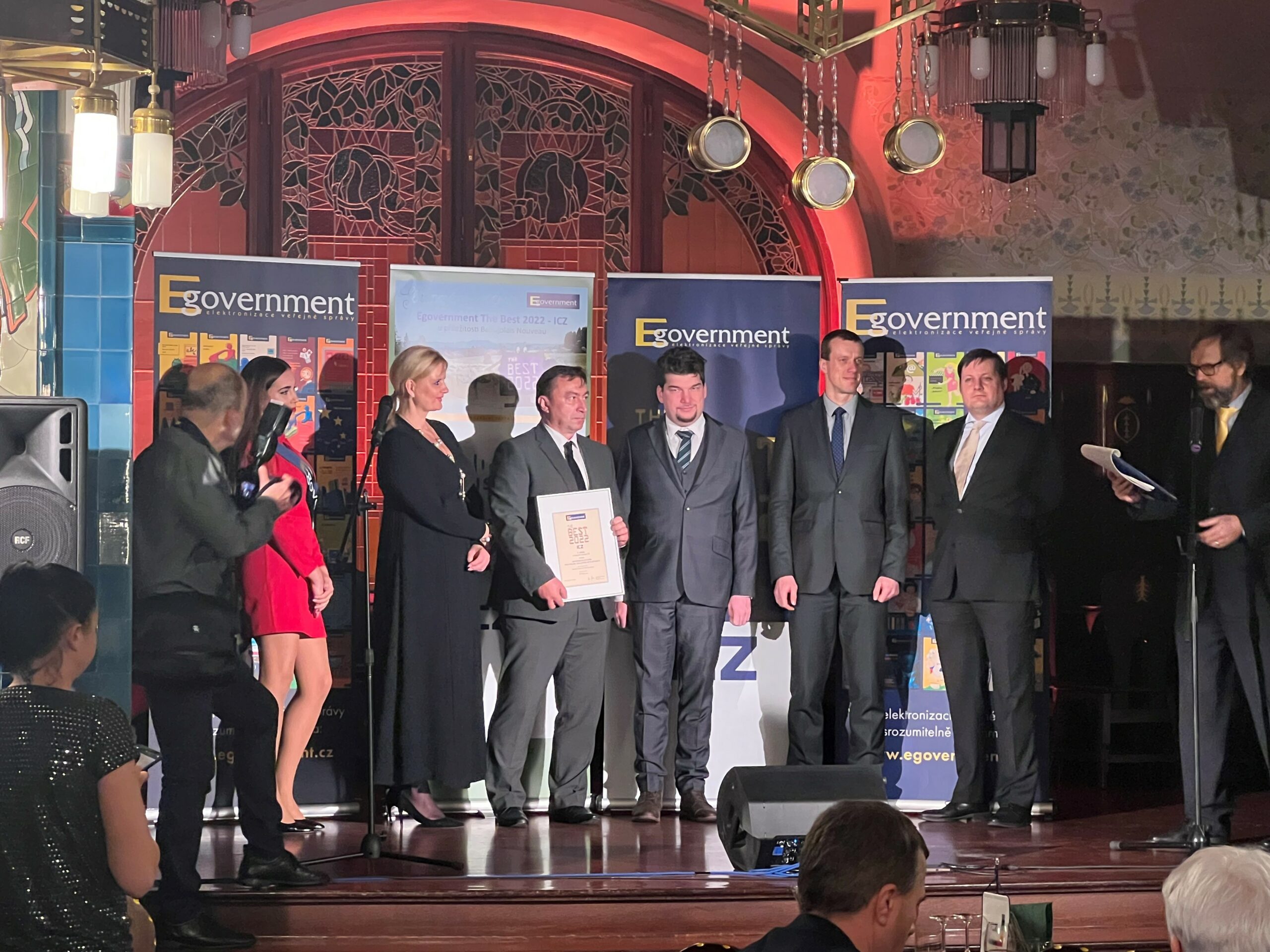
News CNUE, 24 November 2022
1st edition of the Notaries of Europe Hackathon
–

From 21 to 22 November 2022, in Rome, around 40 participants from the 22 notariats of the European Union worked to create innovative digital solutions in the first edition of the Notaries of Europe Hackathon, organised by the Council of the Notariats of the European Union (CNUE) and Notartel, the IT company of the Italian notariat.
During these two days, eight multidisciplinary and international teams had the objective of creating projects or concrete applications around two crucial themes in the field of justice: electronic identification and interoperability of national systems.
On the first day, the participants had the opportunity to follow the exchanges of the CNUE Futurology Forum, whose objective was to provide background on the two themes of the Hackathon. Under the chairmanship of Mr Tamás Parti and with the participation of the European Commission, two round tables aimed at presenting the practices in place at national level and the evolving legislative framework at European level, with the revision of the e-IDAS Regulation, the proposal for a Regulation on the digitalisation of cross-border judicial cooperation and the e-CODEX Regulation.
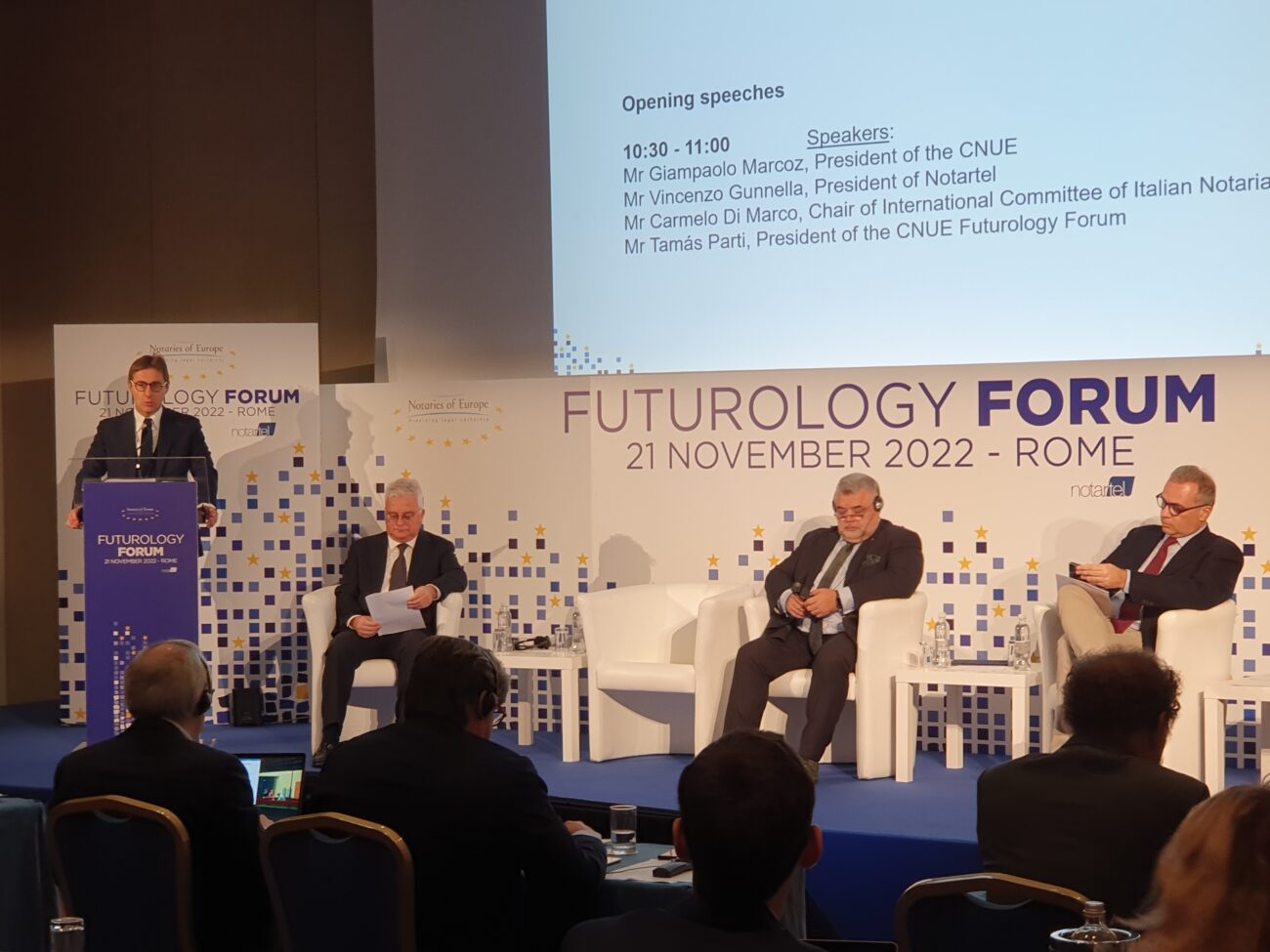
Following the forum, the Hackathon teams were able to start thinking about concrete solutions, supervised by teams of specialists. There were many moments of team building, intense work, but also conviviality. Each team was able to put a concrete project on paper, which they will have the opportunity to present at the CNUE General Assembly on 8 and 9 December in Brussels.
News CNUE, 14 November 2022
Final conference of the project “JuWiLi – Justice Without Litigation” – 9 November 2022, Brussels
–
On 9 November 2022, the CNUE hosted the closing conference of the “Justice Without Litigation – JuWiLi” project, co-financed by the European Commission. The conference presented the conclusions and recommendations of the project in which the CNUE was a partner with the Chambers of Notaries of Austria, Croatia, the Czech Republic, Slovakia and Slovenia, the Universities of Vienna and Graz and the Institute for Economic Research Economia. The Hungarian Notariat also participated in this work as an expert.
The project analysed for Austria, Croatia, the Czech Republic, Hungary and Slovakia the term “court” in the context of the EU Regulation on successions in non-contentious judicial proceedings by notaries from the point of view of comparative law, fundamental rights and the rule of law. The project also included Slovenia where the reflection of policymakers, academics and the Chamber of Notaries on the transfer of judicial tasks to notaries is progressing.
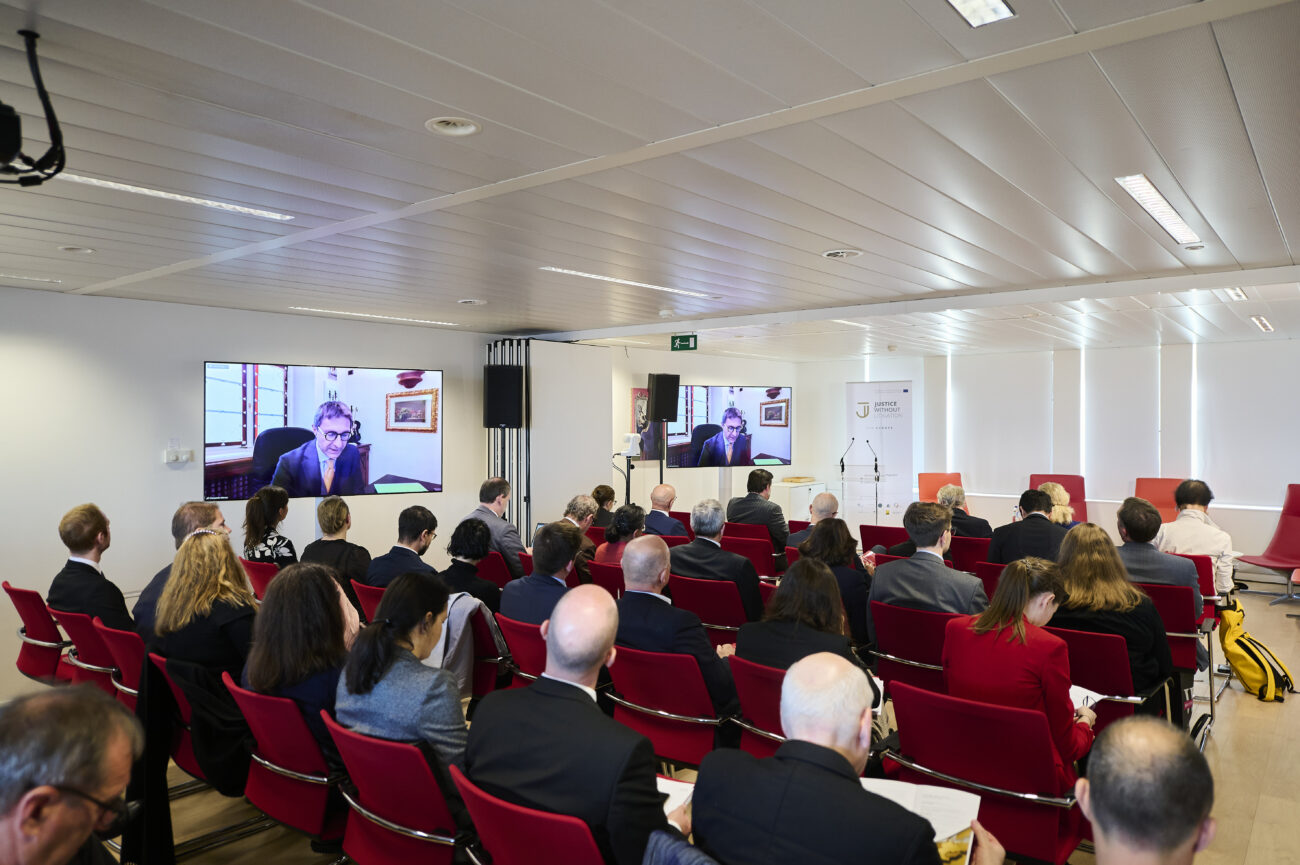
CNUE President Giampaolo Marcoz intervened at the opening of the conference. He welcomed the fact that the JuWiLi project had been mentioned in the latest report on the efficiency of the notarial profession published by the Council of Europe and its European Commission for the Efficiency of Justice. He also pointed out that this collaboration between the notariats of Central Europe in the context of a project co-financed by the European Union was the first of its kind and called for the experience to be renewed.
The President of the Austrian Notariat, Michael Umfahrer, stressed that the performance of judicial tasks by notaries plays an important role in the field of civil procedural law. In his view, this topic is of great importance, especially nowadays, as it is ultimately about how we can make our justice systems even more efficient, closer to citizens, even more profitable for the State and thus overall prepared for the challenges of the future.
The panels of the conference brought together the project’s scientific experts and representatives of the European institutions such as the European Commission’s Director for Civil and Commercial Justice Salla Saastamoinen and Austrian MEP Lukas Mandl. CNUE Secretary-General Raul Radoi also presented the new online cooperation mechanism set up on the European Notarial Network (ENN) platform. This system of cooperation will facilitate communication between notaries exercising judicial functions in Europe. It will strengthen mutual trust in these procedures and complement mutual assistance tools such as the European Judicial Network in civil and commercial matters.
The presentation of the JuWiLi project, the conclusions and recommendations can be found at the following link: https://www.notar.at/juwili/
The videos of the conference are available online.
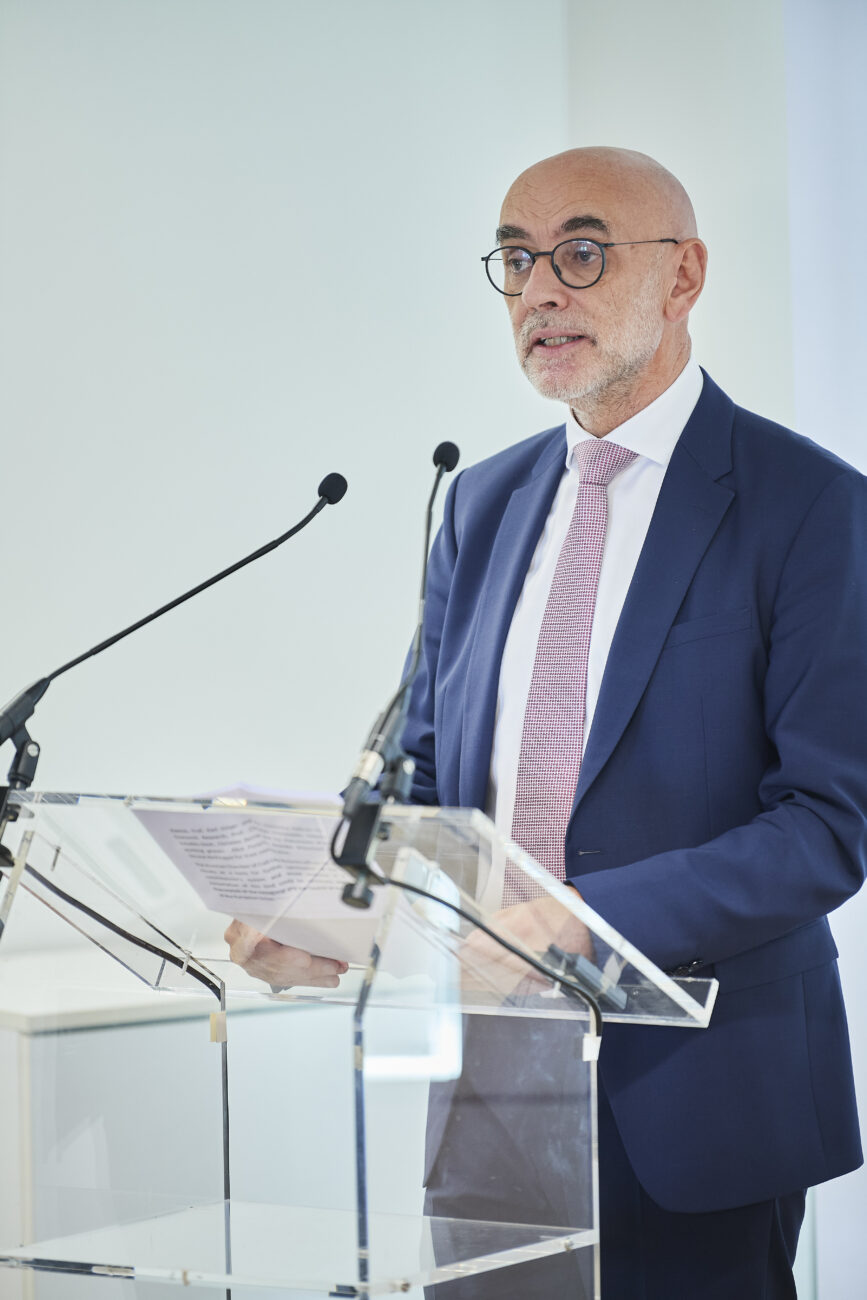
News CNUE, 25 October 2022
Workshop on Digitalisation of Justice – 24 October 2022, Brussels
–
The CNUE, in the person of its President Giampaolo Marcoz, took part on Monday 24 October in a workshop organised by the Czech Presidency of the EU and devoted to the digitalisation of justice. President Marcoz was invited to speak on a panel entitled “Reflections and possible ways forward – which areas of digitalisation of justice should a potential roadmap prioritise?”.
The debates were intended to hear the voices of different stakeholders and to discuss the outstanding challenges and opportunities at EU level where digitalisation could bring value. It was also an opportunity to suggest ways forward for the definition of a possible roadmap.
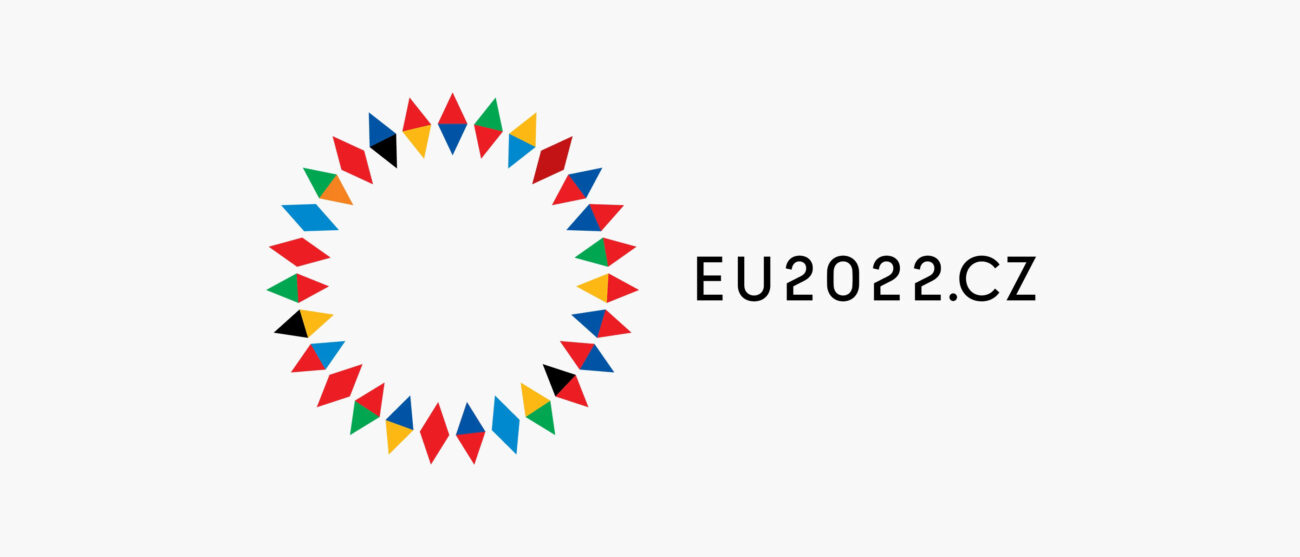
In the context of the important legislative proposals currently under discussion at the level of the European institutions, with the revision of the e-IDAS Regulation and the proposal for a Regulation on the digitalisation of justice systems, President Marcoz underlined that the major challenge for the notarial profession is to ensure legal certainty by default, without leaving out certain people, especially the vulnerable. For the CNUE, digitalisation should be a choice for the citizen, not an obligation.
As regards areas that should be further developed, President Marcoz highlighted the need to continue the process of interconnection of registers in Europe, taking as an example the ENRWA and the interconnection of the registers of wills and ECSs.
We support the principle of legal certainty by default. It is essential that the development of digital solutions in a cross-border context does not undermine legal certainty. Legal certainty and trust in the digital world are essential
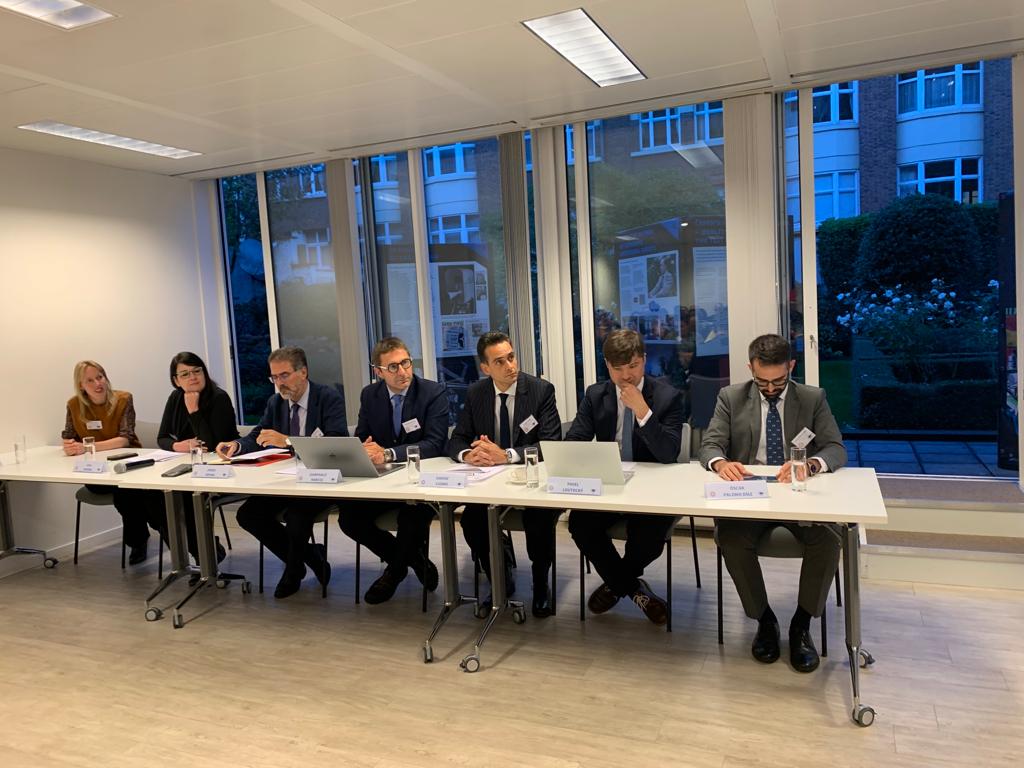
News CNUE, 29 June 2022
General Assembly of the CNUE – Como, 24 June 2022
–
The Presidents of the 22 EU notariats met for their Plenary General Assembly in Como on 24 June 2022. On the agenda, of course, the conflict in Ukraine with the exceptional participation of the President of the Ukrainian Chamber of Notaries, Volodymyr Marchenko, whose notariat has been an observer member of the CNUE since 1 March.
President Marchenko solemnly addressed the Presidents of the European notariats. He described the atrocities faced by the Ukrainian people and notaries. Many of them abandoned their offices and joined the army. Other notaries have fled with their children abroad. Only about one third of Ukrainian notaries continue to operate to serve citizens, to draft acts under extremely difficult conditions.
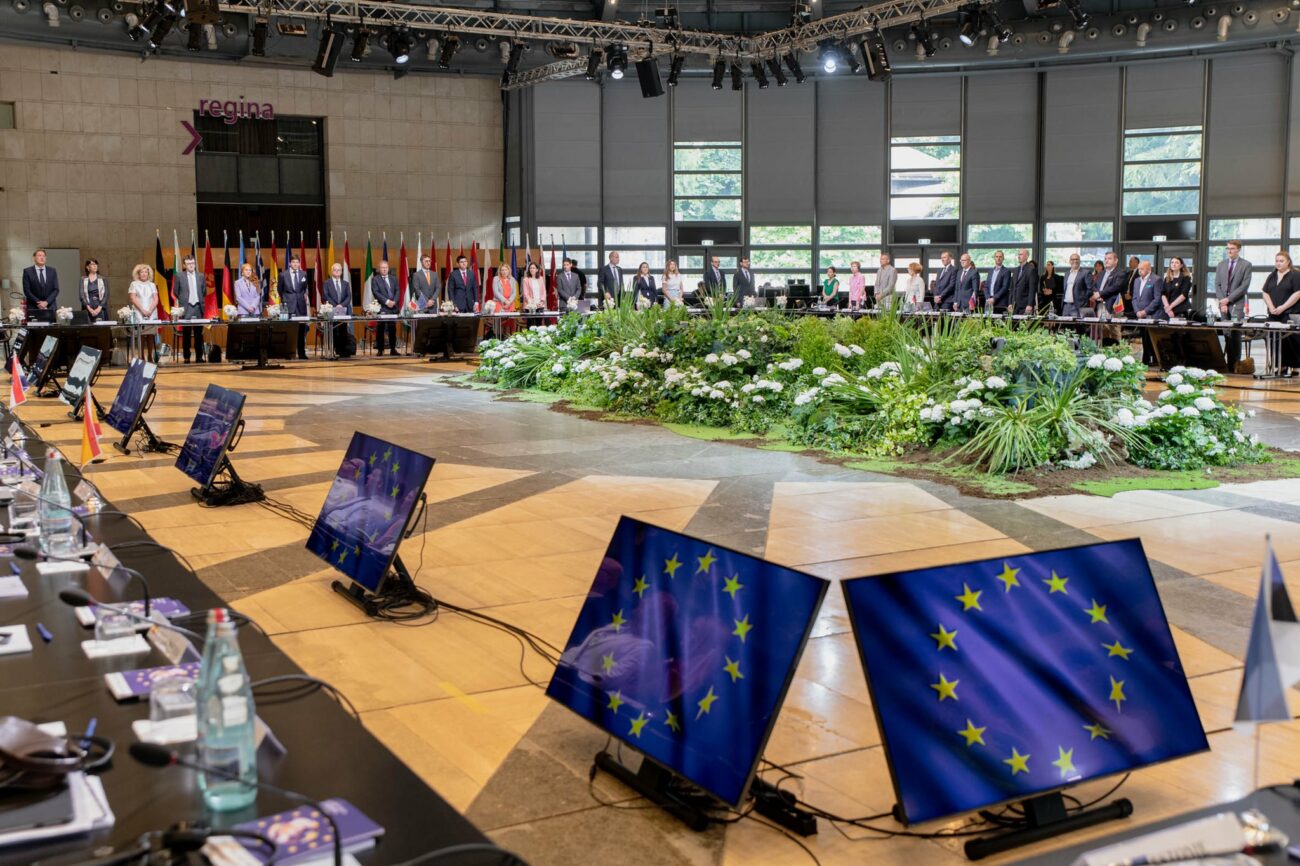
President Marchenko reiterated its call for support to the ‘Save Ukrainian Notaries and their Families’ Foundation, which aims to help notaries both on a humanitarian and structural level. This call was heard by the CNUE and its President Giampaolo Marcoz, who undertook to make a financial contribution to the Foundation’s activities. For more information on the Ukrainian Notariat Foundation: http://help.npu.ua/
The Ukrainian conflict was also addressed through the topic of economic sanctions and the participation of the CNUE in the European Commission’s Freeze and Seize Task Force. In addition, the CNUE Office presented the new form put in place, with the help of the European Notarial Network, to facilitate the reception of Ukrainian minor refugees travelling alone or with only one of their parents. Finally, the Italian notariat presented a draft guide on citizenship, which contains national legal information of interest to Ukrainian refugees.
Through video messages, several European politicians addressed the General Assembly of the CNUE. Ana Gallego Torres, Director-General for Justice and Consumers of the European Commission, thanked the CNUE for its action for the benefit of European citizens, in particular on the form for unaccompanied minors. She indicated that a Commission proposal on the protection of vulnerable adults would be published in 2023, in line with the UN Convention on the Rights of Persons with Disabilities. She also informed that the Commission is working on upgrading digital company law. An initiative is planned to enhance cross-border transparency of company information and access to it. It will also aim to facilitate its use in cross-border administrative and judicial proceedings.
Pina Picierno, Vice-President of the European Parliament, referred to EU sanctions against Russia and the role of the CNUE: “These sanctions have seen your essential contribution, in technical and legal terms, to the economic and military support of the legitimate Ukrainian government. And this would be much less significant if there had not also been practical solidarity and widespread sharing by European citizens towards the country, and this is also your case. Having established a strong link with the Ukrainian notariat is already valuable today, but it will be even more so when it comes to rebuilding a country in full membership of the European Union.”
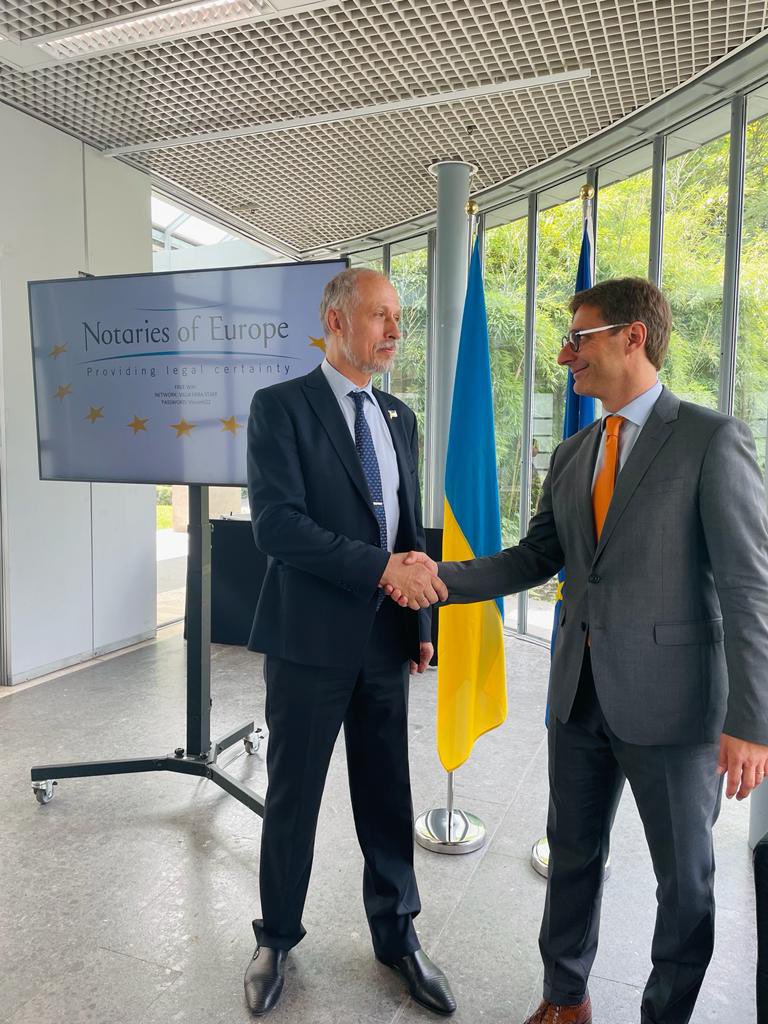
News CNUE, 20 June 2022
Interview with Giampaolo Marcoz, President of the CNUE
–
On 24 June 2022, the Council of the Notariats of the European Union (CNUE) will hold its Plenary General Assembly in Como, Italy. The Plenary General Assembly is an important stage of the year, in which the presidents of the 22 CNUE member notariats, as well as the five observer members, take part. Just a few days before this institutional meeting, we put a few questions to the President of the CNUE, Giampaolo Marcoz, to take stock of the recent news and future issues facing the European notariat.
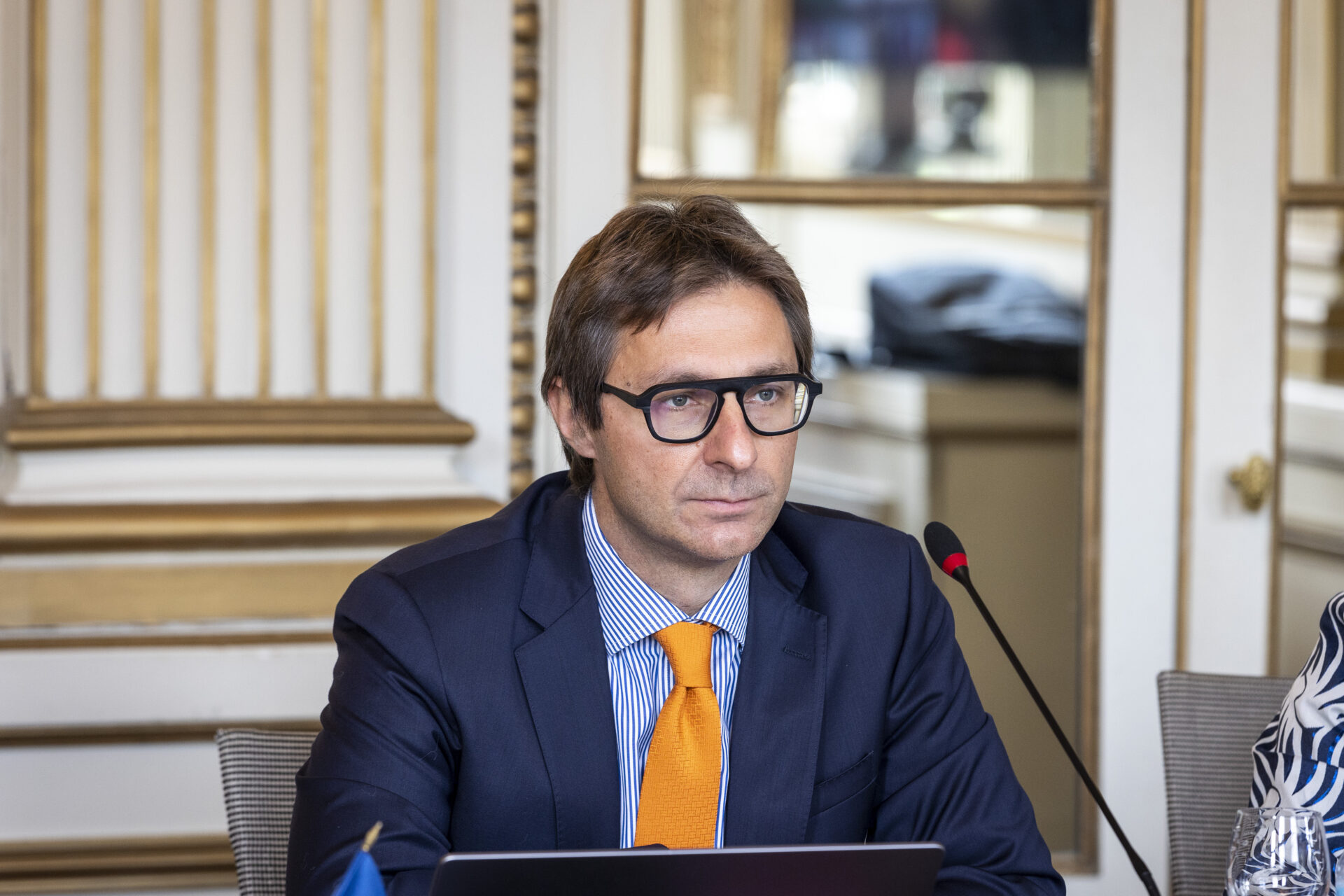
Six months after you took office as President of the CNUE, can you tell us which issues have been at the centre of your concerns?
Obviously, the conflict in Ukraine and its political consequences quickly came to the forefront of our work. In the days following the start of the crisis on 24 February, the CNUE was alerted by the President of the Ukrainian Notariat, Volodymyr Marchenko, to the tragic events taking place. President Marchenko appealed to us for help and since then we have been trying to mobilise the resources at our disposal.
Already on 1 March, at an Extraordinary General Assembly, the CNUE decided to grant the Chamber of Notaries of Ukraine the status of observer member. We then worked to provide financial and humanitarian aid, through organisations such as the Red Cross and the Foundation set up by the Ukrainian Notariat.
We are also in close contact with the European Commission regarding the implementation of sanctions aimed at economically isolating Russia and Belarus. We are also part of the “Freeze and Seize” Task Force set up and coordinated by European Commissioner Didier Reynders.
Obviously, the legal aspect and notarial practice are of paramount importance. We are working on the establishment of a Network of Notaries for Ukraine, which can be mobilised to respond to specific requests. We have added factsheets on Ukrainian law to our public information websites (Successions in Europe, Couples in Europe, The Vulnerable in Europe, etc.). We have drawn up lists of frequently asked questions that notaries may encounter when dealing with cases involving Ukrainian nationals. Finally, with the support of the European Commission, we have developed a multilingual form to facilitate the reception of unaccompanied Ukrainian minors in other EU countries.
Obviously, the conflict in Ukraine and its political consequences quickly came to the forefront of our work.
In parallel to the conflict in Ukraine, we can assume that the European legislative machine has not stopped turning?
Yes, it has! Many dossiers are on the table and have a direct link with the activities of notaries. I am thinking of family law. The European Commission has begun discussions on a new legislative initiative on filiation, which is expected this year.
The protection of vulnerable adults is also a topical issue. For many years, we have been lobbying the European institutions on the need to adopt a European regulation on the mutual recognition of protection regimes. It would seem that the European Commission now wishes to move in this direction.
One of the main files under my responsibility this year is the fight against money laundering. We currently have a package of four legislative proposals at the centre of negotiations between the European institutions. The CNUE is making contributions, in particular on the proposal for a regulation establishing an Anti-Money Laundering Authority, the proposal on the prevention of the use of the financial system for the purpose of money laundering or terrorist financing and, finally, on the proposal for a directive on the mechanisms to be put in place by the Member States for the prevention of the use of the financial system for the purpose of money laundering or terrorist financing and repealing Directive (EU) 2015/849.
With the health crisis, the European legislator also seems to favour an all-digital approach?
The objectives are clear. The European Commission talks about a “Digital Decade”. At the CNUE, we want to ensure that the level of legal certainty is the same in the digital world as in the “real” world. Furthermore, technology should be seen as an additional service tool. For example, for vulnerable people and people with few digital skills, there should always be a paper-based alternative.
We have shared these fundamental principles in two position papers that we adopted in March:
– one on the proposed revision of the e-IDAS/e-ID Regulation, which aims to provide citizens and businesses with digital portfolios, linked to their national digital identities.
– the other on the draft regulation on e-Justice, responding to the consultation that was opened by the European Commission.
The CNUE is working with the European institutions on these proposals. This is an opportunity for the European notariat to highlight our experience and achievements, both at national and European level.
At the CNUE, we want to ensure that the level of legal certainty is the same in the digital world as in the “real” world.
What are your ambitions for the second part of your mandate?
I have two projects that are particularly close to my heart. First of all, we intend to organise a hackathon in the last quarter of 2022, in which teams of multidisciplinary specialists from the various European notariats will participate. I expect this event to be forward-looking, enabling us to envisage tomorrow’s technical solutions for ever more integrated cooperation between European notaries.
Finally, the European Union has decreed that 2022 will be the year of youth. This is an important opportunity for the notariat in many respects. Our profession has changed profoundly. We need to convey the message to the outside world that we are a young, dynamic and forward-looking profession. This year, CNUE’s activities also follow this guideline. On the occasion of the European Day of Justice on 25 October, we will organise an event on the theme of “The rule of law as a protection for the new generations”, probably in partnership with the European Parliament.
News CNUE, 6 May 2022
The European Notarial Network mobilises for Ukraine
–
The European Notarial Network (ENN) held its first meeting of the year in Paris on 3 May 2022. Aimed at discussing and finding solutions to the problems encountered by European notaries when dealing with cross-border issues, the ENN meeting was used this time to define and implement actions to support Ukrainian notaries and Ukrainians in need of legal support, such as war refugees.
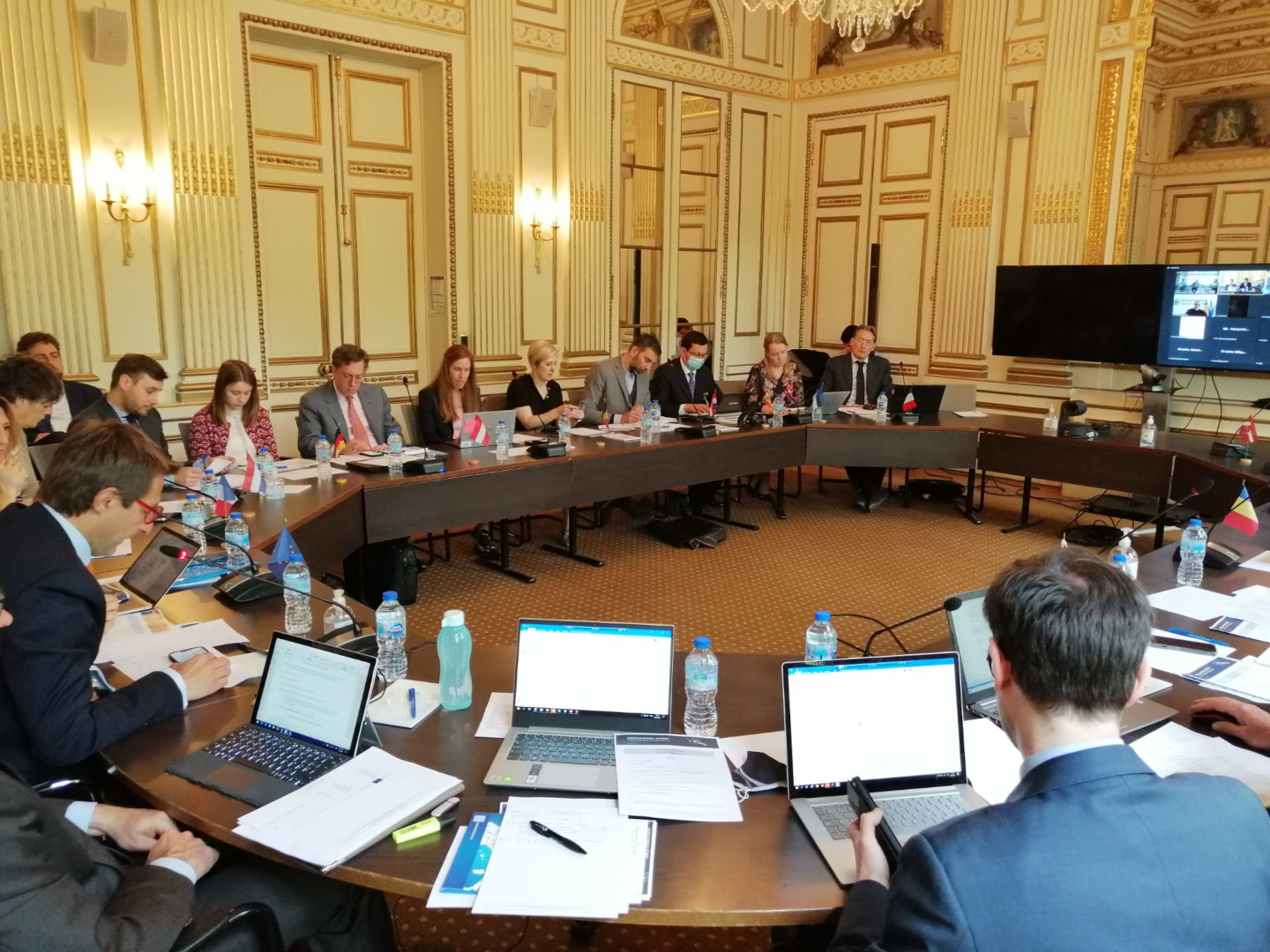
The President of the Chamber of Notaries of Ukraine, Volodymyr Marchenko, took part in the meeting, as well as several Ukrainian notaries. The CNUE President Giampaolo Marcoz addressed the participants at the opening of the meeting, underlining that the European Commission and the European Judicial Network have asked the CNUE to provide practical legal assistance to Ukrainian nationals who have found refuge in Europe.
In concrete terms, the CNUE and the ENN are working on the establishment of a Network of Notaries for Ukraine, which can be mobilised to respond to specific requests. A whole series of practical tools is also being finalised: bilingual forms to help minors, the addition of “Ukraine” sheets on the CNUE’s information websites (Successions Europe and The Vulnerable in Europe), handbooks on frequent questions encountered by notaries and, finally, the creation of a documentary database.
The following day, the French Presidency of the Council of the EU and the French Conseil Supérieur du Notariat organised a conference on the theme “Civil Justice in Europe in the Digital Age“. President Marcoz presented the European challenges and the achievements of the notariat for a digital justice at the service of States and citizens: creation and interconnection of registers, authentic acts in electronic form, electronic signatures, online company incorporation, online communication with administrations, etc. In this context, he recalled the CNUE’s objective of ensuring legal certainty in the digital world.
Finally, on the afternoon of 4 May, the ENN held its first transnational seminar on “Non-judicial divorce and the recast of the Brussels II bis Regulation”. The next ENN meeting will be held on 16 September 2022 in Prague.
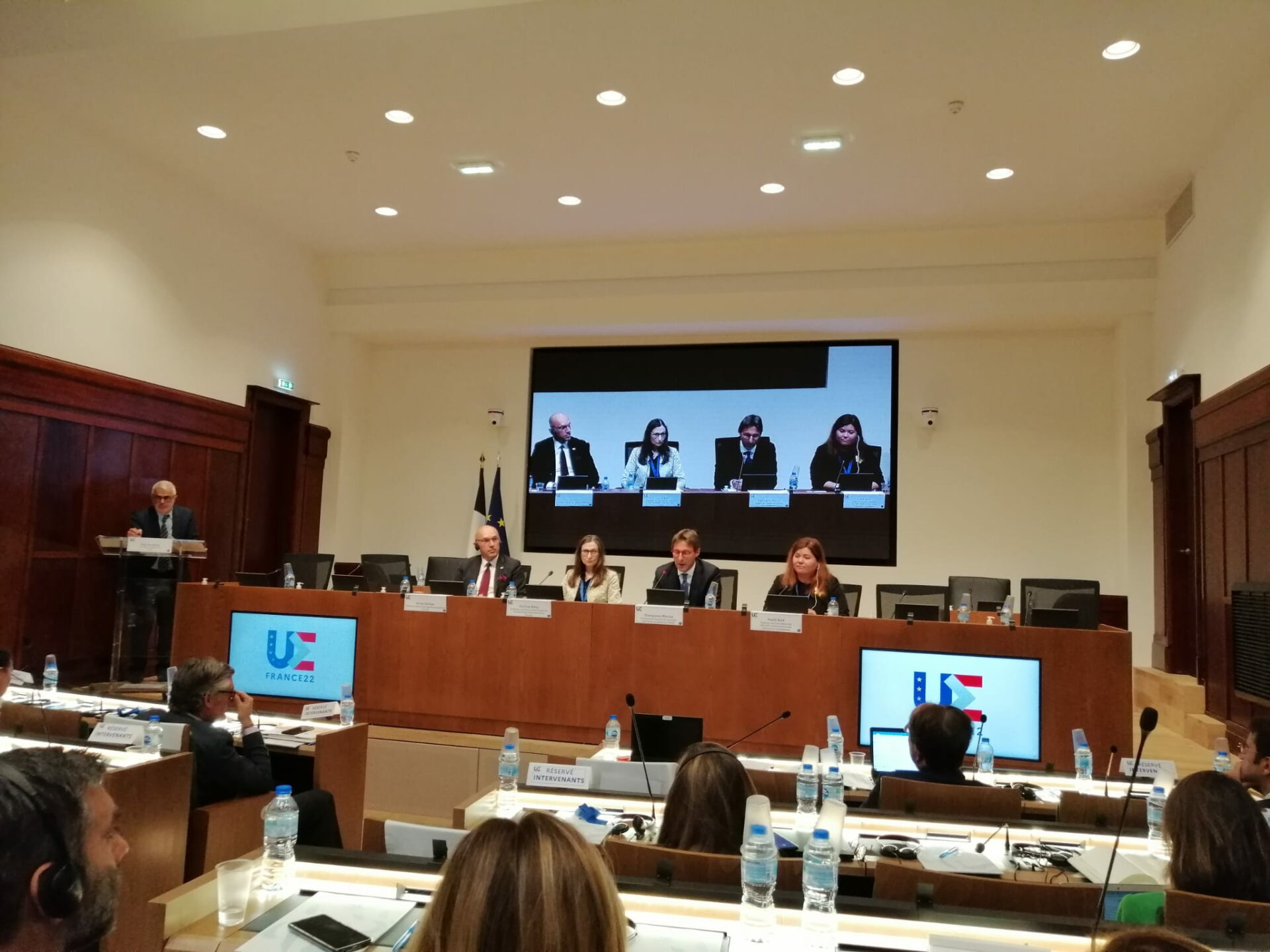
News CNUE, 5 May 2022
Charitable Foundation of the Chamber of Notaries of Ukraine
–
The Chamber of Notaries of Ukraine has set up a Charitable Foundation “Saving Notaries and their Families”. The Foundation is intended to provide direct assistance to Ukrainian notaries and their families affected by the dramatic consequences of the ongoing conflict.
Many Ukrainian notaries have died. Many notaries have fled abroad: at the moment, only a quarter to a third of the notaries in Ukraine can carry out their activities. Many notary offices have been completely destroyed by the bombs. In many cases, a lifetime’s work has been destroyed, sources of income have disappeared and livelihoods are in short supply.
The CNUE has therefore appealed to its members to ask each of the 45,000 notaries of Europe to make a donation to this Foundation. Our strength lies in unity, a truth that has been proven time and again.
If you wish to make a donation to the Foundation, you can use the following bank details:
Correspondent bank:
SWIFT CODE: COBADEFF
COMMERZBANK AG,
Frankfurt am Main
Account with Institution:
Acc. 4008865941/01
BIC (SWIFT) CODE: COSBUAUK
Bank name: JOINT STOCK COMPANY STATE SAVINGS BANK OF UKRAINE
Bank address: KIEV, UKRAINE
Beneficiary:
ACC: UA053123560000026009300940388
Name: CHARITY ORGANIZATION “CHARITY FUND “SAVING NOTARIES AND THEIR FAMILIES”
Address: Ukraine, Uzhgorod, Svobodi str, 2 kv 65
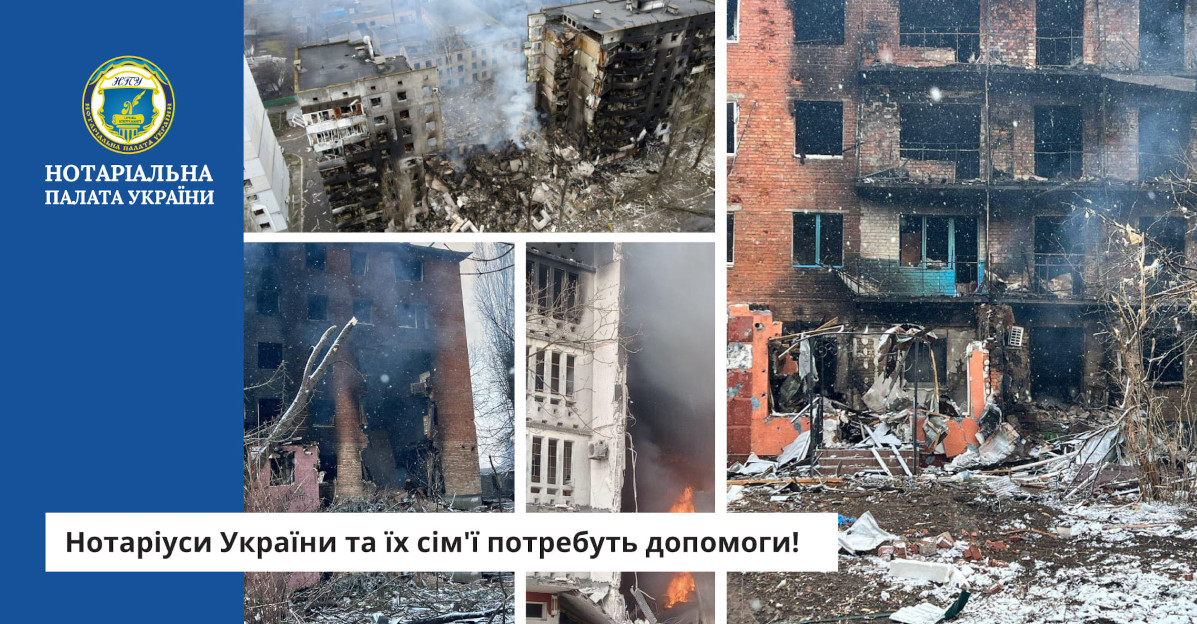
More information on the Foundation’s webpage
News CNUE, 28 April 2022
Anti-money laundering: the importance of the economic method
–
3 questions for Antonio Cappiello. Expert on law & economics at the Consiglio Nazionale del Notariato
by Giampaolo Marcoz, president of the CNUE
During the last EU training seminars on anti-money laundering (e.g. Europe for Notaries, European Notarial Network, LIGHT), A. Cappiello (economic expert of the Italian notariat) captured the attention for a different type of approach, illustrating the importance of data analysis as a key element of the AML and using the macroeconomic evaluation to highlight the socio-economic contribution of notaries in the dialogue with policymakers. I asked Cappiello 3 questions in order to summarize, through his answers, some results of his analyses and to highlight how, in recent years, the economic approach has been effectively used by the CNUE and CNN in responding to the needs of international organizations that propose parametric tools as a guideline for the legislator.
M: How to measure the compliance with FATF standards and what does the aggregate analysis on CNUE countries tell us?
C: The recommendations of the Financial Action Task Force (FATF) are global AML standards, shared internationally, and allow various countries to work successfully against the illegal use of their financial systems. We can then use the FATF Assessment Reports (MER) to carry out further analysis and compare the level of compliance with the AML standards of different countries. Considering a sample of around 90 countries (based on the latest available FATF MER assessment reports), we can calculate the level of compliance by country cluster (countries grouped by area). Higher scores represent a better level of cluster compliance (see Fig. 1). In CNUE countries, most of the suspicious transaction reports (STR) of professionals are provided by notaries. Therefore we can use, with some elaborations, the FATF DNFBPs indicators as a proxy of the notarial contribution to AML policies (for example in Italy, according to the latest reports of the FIU, about 90% of the STRs come from notaries). The aggregate analysis of the data shows the best compliance in the field of AML by the CNUE countries.
Fig. 1 Better compliance with FATF standards by CNUE countries
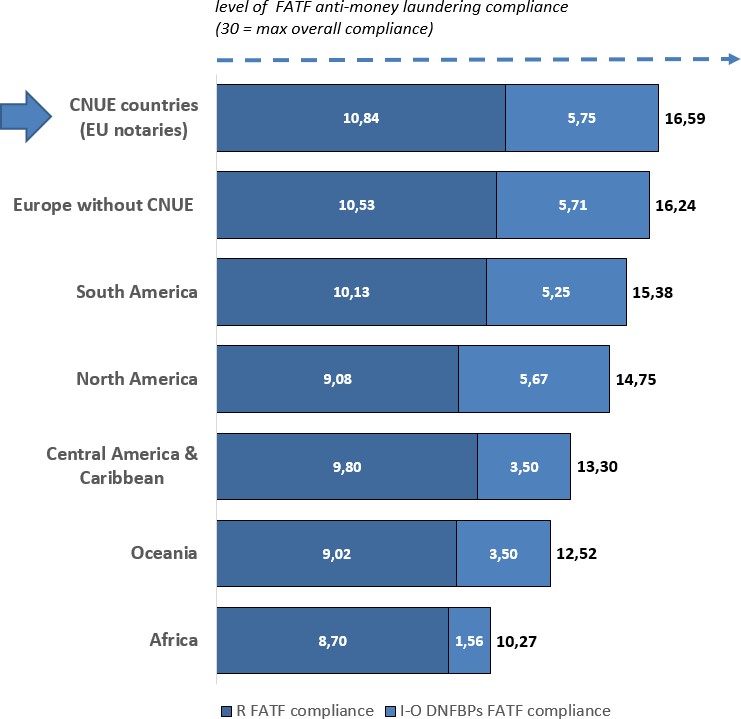
M: Can “EU anti-money laundering notarial training and cooperation” have a multiplier effect?
C: The benefit of notary functions, if transformed into understandable synthetic indicators, can certainly help policymakers in the implementation of socio-economic policies. The “Europe for Notaries” seminars were also an opportunity for an exchange of good practices.. I believe that the seminars of the LIGHT AML Project and of the RNE can also provide the same opportunity. For example, on the occasion of the cycle of seminars of the European Notarial Network, we realized that the Latvian FIU data on STR indicated that a mandatory notary control on real estate contracts could have allowed better monitoring of the AML by the supervisory authorities. The data from the Latvian FIU only needed to be processed and interpreted: the data on notarial STR were an indication of the AML high potential of the Latvian notaries with whom we subsequently produced a study that was successfully used to support their professional policies with national authorities.
M: Why is it important to use the economic analysis?
Legislative choices, especially European legislation, are increasingly based on specific impact assessments and the use of cost-benefit analysis. Since we are convinced that the legal certainty provided by Notaries of Europe is an important value, it is necessary to highlight this important characteristic of the notary profession and provide evidence of it also through the typical tools of the economic analysis. The results that emerge from parametric studies represent important elements for communicating effectively with the legislator and stakeholders. Last November notaries, producing a macroeconomic study on the analysis of World Bank data, were the only professional body to be admitted to the OECD PMR workshop; thus being able to defend the interests of the entire category at an international level (link to the study). This is a different approach that integrates the traditional legal analysis. It requires time to test various methodological tools but it is necessary to adequately respond to international organizations that propose parametric tools as guidelines for policymakers.
In thanking A. Cappiello for his valuable contribution, I take this opportunity to remind that – starting from the results of the study on the OECD PMR indicator – CNUE will produce a more in depth macroeconomic study. In fact, given the growing need to relate to the indicators proposed by the main international organizations and considering the globalization of the professional services, socio-economic analyses that can highlight the efficiency and good economic performance of notary services at European level are of paramount importance.
News EU, 24 April 2022
EU sanctions against the Russian Federation and Belarus
–
Update, 24 April 2022
The European Commission has created an information page on the measures taken since the beginning of the conflict in Ukraine, the sanctions in force and frequently asked questions. The Commission has also set up a whistleblower tool to report possible violations of existing sanctions.
In view of the unprovoked and unjustified military aggression against Ukraine, the European Union has put in place a series of sanctions against Russia and Belarus. These sanctions consist of individual measures, sectoral measures and financial sector restrictions. In this context, CNUE is disseminating this information to the European notariats to raise awareness of their concrete legal obligations.
The EU adopted new sanctions against Russia and Belarus on Wednesday 10 March. The European Commission has issued a press release following the adoption of this new sanctions package. We also draw your attention to the Council’s webpage, which includes a timetable.
Consolidated list of sanctions :
- PDF – v.1.0
- CSV – v.1.0
- CSV – v.1.1
- XML (Based on XSD) – v.1.1
- XML (Based on XSD) – v.1.0
Individual measures
The EU has designated under sanctions a number of individuals and legal persons. Being a “designated person” means that all funds and economic resources (including property), directly or indirectly belonging to, held or controlled by a designated person must be frozen.
In practice, any EU person and any person doing business in the EU must prevent any transfer, alteration, access, use of or other dealings with those funds. The concept of funds encompasses cash, deposits interest, publicly- and privately-traded securities and debt instruments. Freezing of economic resources of a designated person means that any assets of a designated person, tangible or non-tangible, cannot be used by anyone to obtain other funds or assets (e.g. they cannot be sold or mortgaged). Thus, the notaries play an important role in monitoring that no prohibited transactions take place.
EU sanctions also prohibit making further funds or economic resources available to designated persons or persons controlled by them. By way of example, this means that no further transactions with those persons are possible. In order to assess if an entity is controlled by a designated person, we refer you to the opinion published by the Commission on 8 June 2021.
The company law operations are not explicitly mentioned but since a company or company shares can fall under the “any assets, tangible or non-tangible”, the sanctions are relevant to keep in mind as context if a designated person or persons controlled by them would want launch transactions with such assets.
You can find the consolidated list of designated persons and entities on the Financial Sanctions Files website.
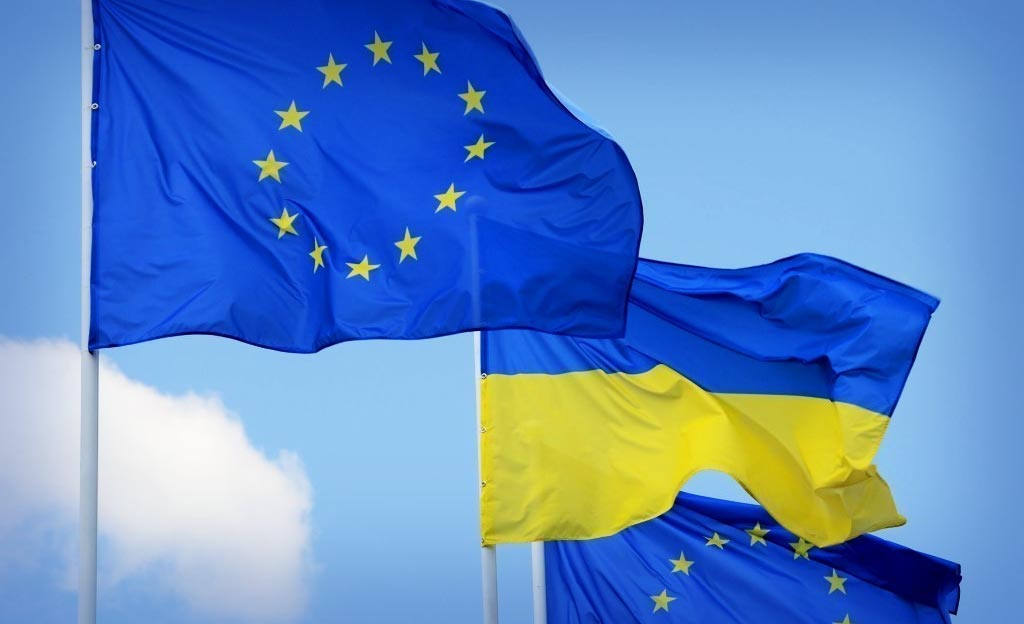
Sectorial measures
The EU has also put in a place restrictions on export to, import from, supply to or use in the Russian Federation of certain goods and associated services, including dual-use and various other items, goods for military use and for oil refining, aviation and space sectors. This means that all relevant transactions concerning those items are prohibited.
Financial sector restrictions
EU sanctions also envisage certain specific restrictions concerning the financial sector. This includes the prohibition for all EU person and any person doing business in the EU to engage in any transaction with the Russian central Bank, irrespective of the type of currency. With limited exception (e.g. for humanitarian purposes), it also prohibits public financing or financial assistance for trade with, or investment in, Russia, as well as certain investment services, including for the Russian government.
News CNUE, 4 April 2022
Conclusions of the 1st UINL International Forum on the Role of Women Notaries in the 21st Century
–
The First International Forum on the Role of Women Notaries in the 21st century, convened by UINL President, Not. Dra. Cristina N. ARMELLA, first woman to be elected President of this international organization, concluded on 8 March 2022 on the occasion of International Women’s Day.
After two working sessions to study the role of women notaries on four major themes related to the notarial function (ethical values, training, human rights, leadership), a closing webinar presented to the more than 300 registered notaries, women and men, from the UINL the good practices revealed by the discussions.
The ethical values of equality, merit and respect were first highlighted by Adriana CUELLAR (Colombia). The validation of legal acts protecting women in the context of legal security requires, in addition to the active participation of (women) notaries, a moral vocation, a sense of empathy and service, all in a protected working environment.
Continuing education is considered to be a crucial point for the involvement of women in the notarial function. The reinforcement of exchange frameworks between colleagues from all over the world and the participation of women in international training courses were favored by Régine DOOH COLLINS (Cameroon). Also, women notaries are encouraged to play a leading role in Universities and in political life.
Legal certainty as a guarantor of freedom is crucial for the respect of human dignity and equality, as Almudena CASTRO-GIRONA (Spain) pointed out. Notaries are the cornerstone of preventive legal security. They receive and advise all citizens without distinction, supporting them institutionally in their decision-making. The training of notaries, the information of people in vulnerable situations and the promotion of new legislation are the three pillars of positive action recommended in favor of the principle of equality, and of human rights in general.
In addition, Prita SUYUDI (Indonesia) highlighted the opportunities to be seized, particularly in the context of the development of new technologies and the widespread dissemination of information, for women notaries to assume leadership functions within their Notariats and their communities, thus enabling other women notaries to empower themselves, while reminding that silent violence due to gender stereotypes still persists.
The men representatives of the Forum (Abdelhamid ACHITE-HENNI, Algeria; Lionel GALLIEZ, France; Hideo TAKASAKI, Japan; Guillermo ESCAMILLA, Mexico) recalled that the inclusive work of women and men notaries is essential to guarantee real and effective equality in the notarial function, on the one hand, and for the citizens it serves, on the other hand. They expressed their wish to make this forum a lasting and even broader event, in collaboration with other international organizations working on the transversal issue of gender equality.
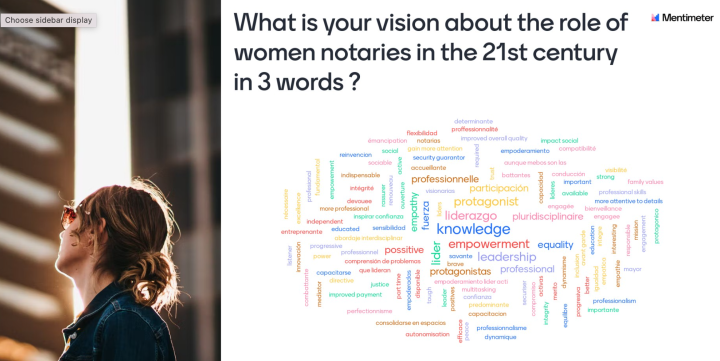
Besides, several international organizations intervened throughout the Forum. FAO (Rumyana TONCHOVSKA) presented the field results obtained following missions on the promotion of land control and ownership by women in the Balkans. The project as a whole was presented during the session of 8 March by Lovro TOMASIC (Germany).
The Hague Conference on Private International Law (HCCH – Nietta KEANE) recalled the essential role of notaries in the protection of adults, especially the elderly, the majority of whom are women.
UNICEF (Anne de MATHAREL) explained their actions in the benefit of girls and the importance of donations and legacies, usually made before a notary, for the realization of their projects.
Judge Paula Maria GARCIA VILLEGAS SANCHEZ CORDERO (Mexico) concluded on the optimistic note of the significant progress already made for self-determination by previous generations of women. She nevertheless deplored the violence, both visible and hidden, that still exists against women and called for no reverse gender stereotyping of boys and adolescents. She also praised the importance of notaries as advisors.
Finally, the President closed the Forum with wishes for world peace and the establishment of a new working group within UINL entitled “Women and Men Notaries of the 21st Century for the Development and Protection of Women’s Rights”, which will be responsible for reflecting on ways to achieve de facto gender equality and to make visible and rethink the role of the Notariat in this area.
To watch or replay the webinars of the International Forum on the Role of Women Notaries in the 21st century, please visit the UINL e-learning platform in the coming days.
News CNUE, 21 February 2022
Conference on “The implementation of the EU Directive n°2019/2121 on cross-border transformations, mergers and divisions
–
On 17 February, the CNUE organised an online conference on “The implementation of the EU Directive n°2019/2121 on cross-border transformations, mergers and divisions”. The aim of the conference was to take stock of the transposition of this directive in the Member States, which have until 31 January 2023 to take the necessary measures.
Notaries from Germany, Belgium, France, Italy, Luxembourg and Czech Republic took part in the two panel discussions, which aimed to review the points still under debate concerning the scope of the directive and the controls on the legality of the operations covered.
Indeed, the Directive provides a general framework for the procedure with specific aspects that must be respected to ensure that the procedures are sufficiently harmonised to guarantee legal certainty, while leaving Member States the possibility to adapt them in their national systems.
According to the Directive, “Member States shall designate the court, notary or other authority or authorities competent to review the legality” of cross-border transactions, both for the parts of the procedure governed by the law of the Member State of departure and for issuing a pre-transaction certificate attesting to the fulfilment of all relevant conditions and the correct completion of all procedures and formalities in the Member State of departure and “for the part of the procedure governed by the law of the Member State of destination and for approving the cross-border transformation/merger/division. On the side of the authority of the country of departure, it will in particular be a question of ensuring the protection of creditors and minority shareholders, whereas the authority of the country of destination will in particular ensure compliance with the provisions of national law on the formation and registration of companies” and, where appropriate, compliance with the arrangements for employee participation.
In some countries, notaries will probably be designated as the competent authority. This is why, by organising this conference, the CNUE wanted to contribute to the current reflections on this subject in view of the necessary implementation of the directive.
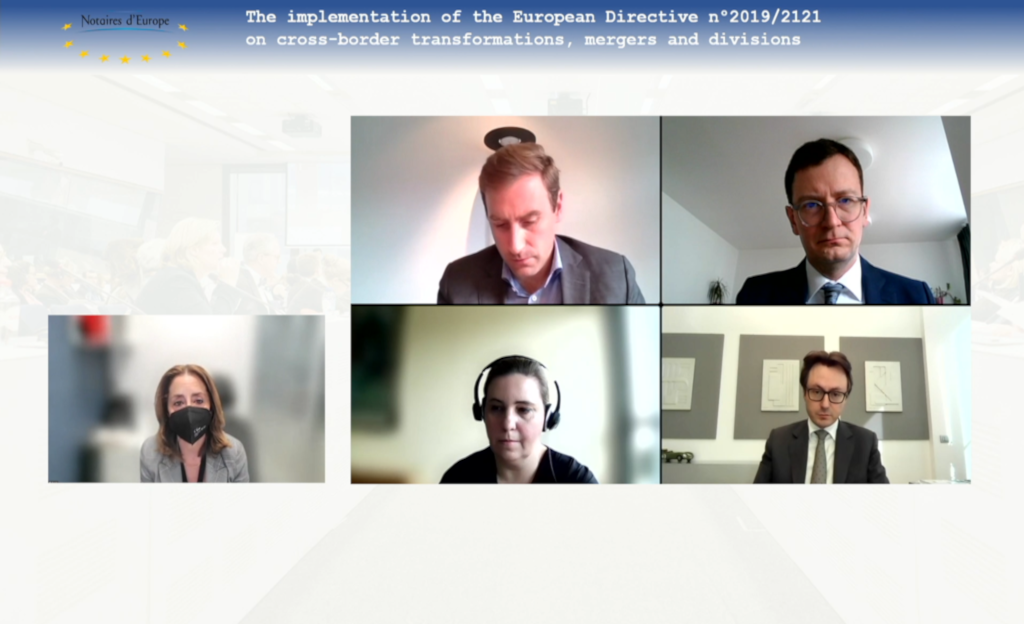
News CNUE, 10 February 2022
“EU L@w for Notaries – Notaries for EU L@w” training seminars kick off
–
The first seminar of the “EU L@w for Notaries – Notaries for EU L@w” training programme was held on Thursday 10 February in Vilnius, under the auspices of the Lithuanian Chamber of Notaries, in partnership with the Estonian, Latvian and Polish notariats. The theme of the seminar was data protection and it addressed aspects such as the European regulation on data protection (“GDPR”), cybercrime, remote authentication of notarial acts or the legal frameworks of the participating countries.
Around ten seminars will be held in the course of 2022, during which European notaries will be able to benefit from training in family and company law, in addition to data protection. At the end of this programme, a learning platform will be launched which will host a number of webinars, e-learning modules and MOOCs on the three topics mentioned.
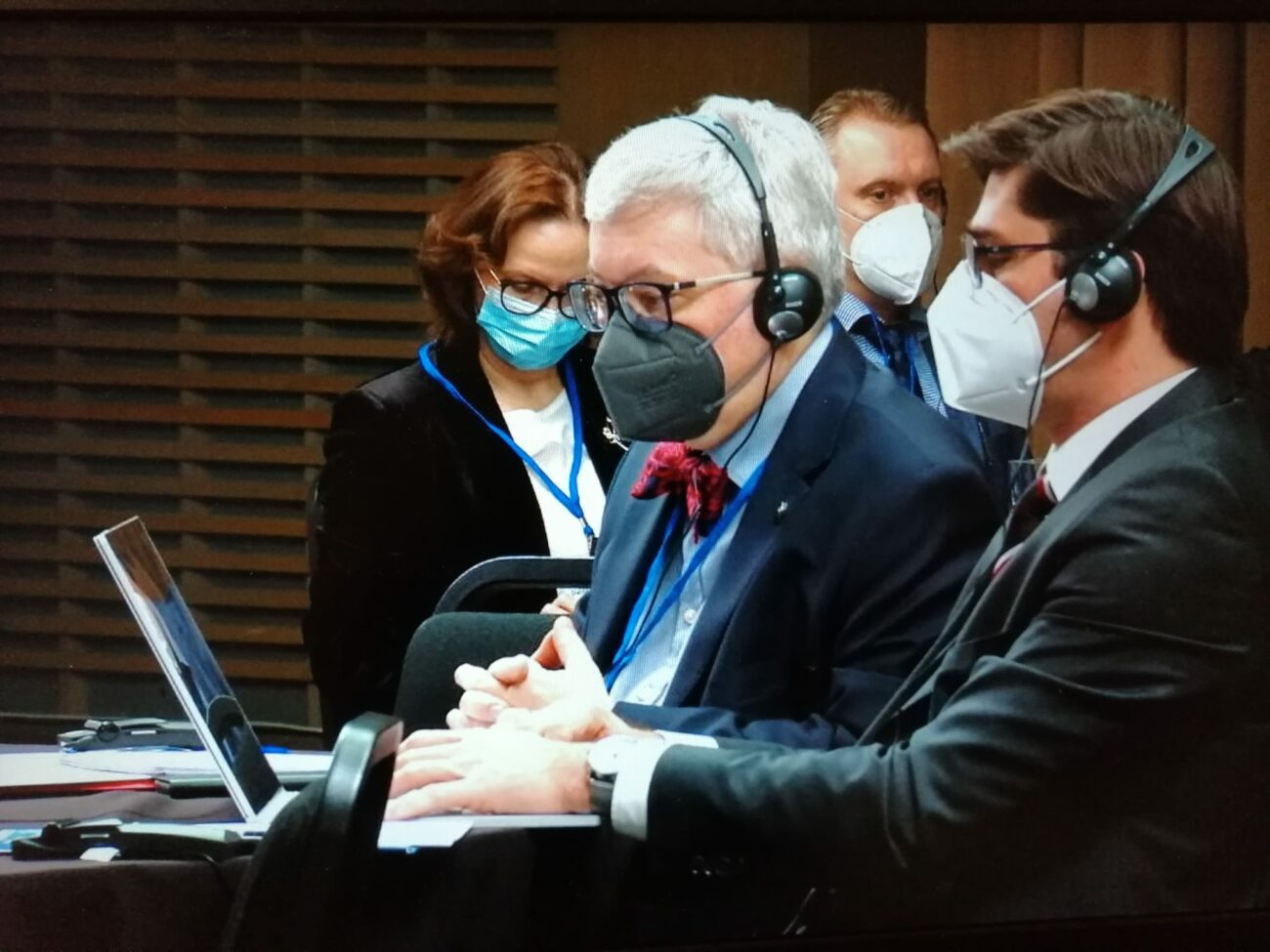
The calendar of seminars and their programmes are available on the CNUE website.
News CNUE, 1 February 2022
Publication of the CNUE Annual Report 2021
–
The CNUE has just published its annual report for the year 2021. You will find all the highlights of the past year for the European notariat.
The annual report is available in English and French, and at the following link on the Yumpu platform for a better reading experience: www.notariesofeurope-report.eu
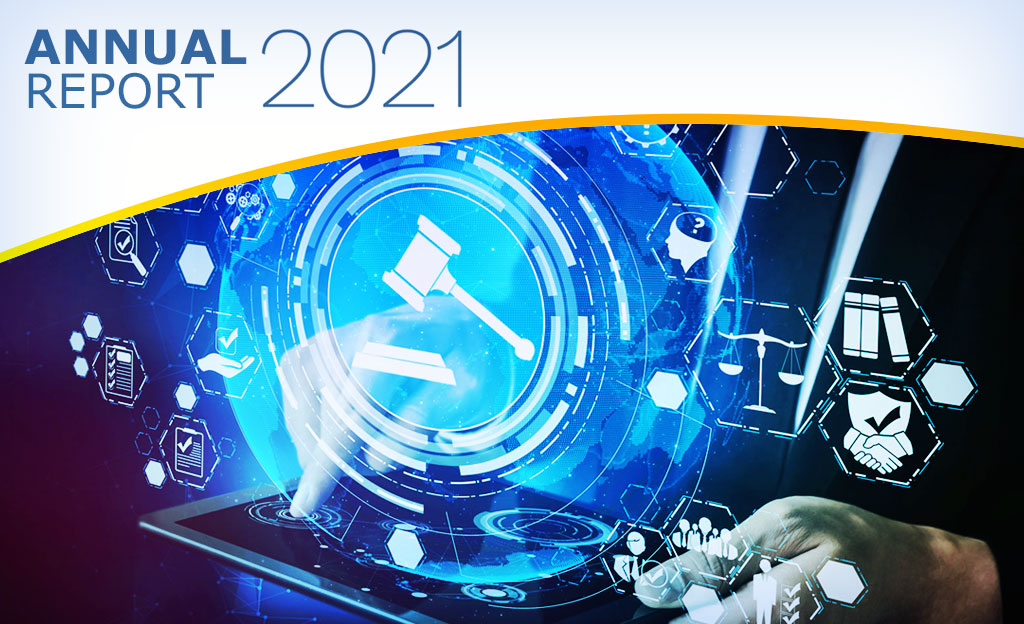
News CNUE, 18 January 2022
Giampaolo Marcoz becomes the new President of the Notaries of Europe
–
On the occasion of the handover ceremony held in Rome on Tuesday 18 January, the Italian notary Giampaolo Marcoz took office as President of the Council of Notariats of the European Union (CNUE) for the year 2022. He succeeds the Hungarian notary Ádám Tóth and now represents the 22 notariats of the EU and the 45,000 notaries in Europe.
Read the biography of President Giampaolo Marcoz
The political and legislative issues facing CNUE in 2022 are numerous:
- The digital transition in the field of justice
The European Commission published, on 3 June 2021, a proposal for the revision of the e-IDAS/e-ID Regulation, which aims to provide citizens and businesses with digital wallets, linked to their national digital identities. These wallets will allow to prove personal attributes (driving licence, diplomas, bank account, etc.) and to access online services.
On 1 December 2021, the European Commission adopted several initiatives to digitise the EU’s judicial systems, making them more accessible and efficient.
On these proposals, the CNUE is working together with the European institutions to continue to guarantee the same level of legal certainty in the digital world.
Finally, the CNUE will continue to support notariats in the national implementation of the directives on the incorporation of online companies and on cross-border mobility and will contribute to the European Commission’s future projects on the digitalisation of company law.
- The fight against money laundering
On 20 July 2021, the European Commission presented a package of measures to combat the scourge of money laundering. Notaries are one of the key players in the fight against money laundering. In Europe, as public officers, they are at the centre of legal arrangements for real estate transactions and company deeds, which can be a channel for money laundering operations. Notaries have an obligation to inform the public authorities of any suspicions they may have about a financial operation or transaction. For these reasons, the CNUE will follow with particular interest the legislative process on these measures, one of whose objectives is the establishment of a European anti-money laundering authority.
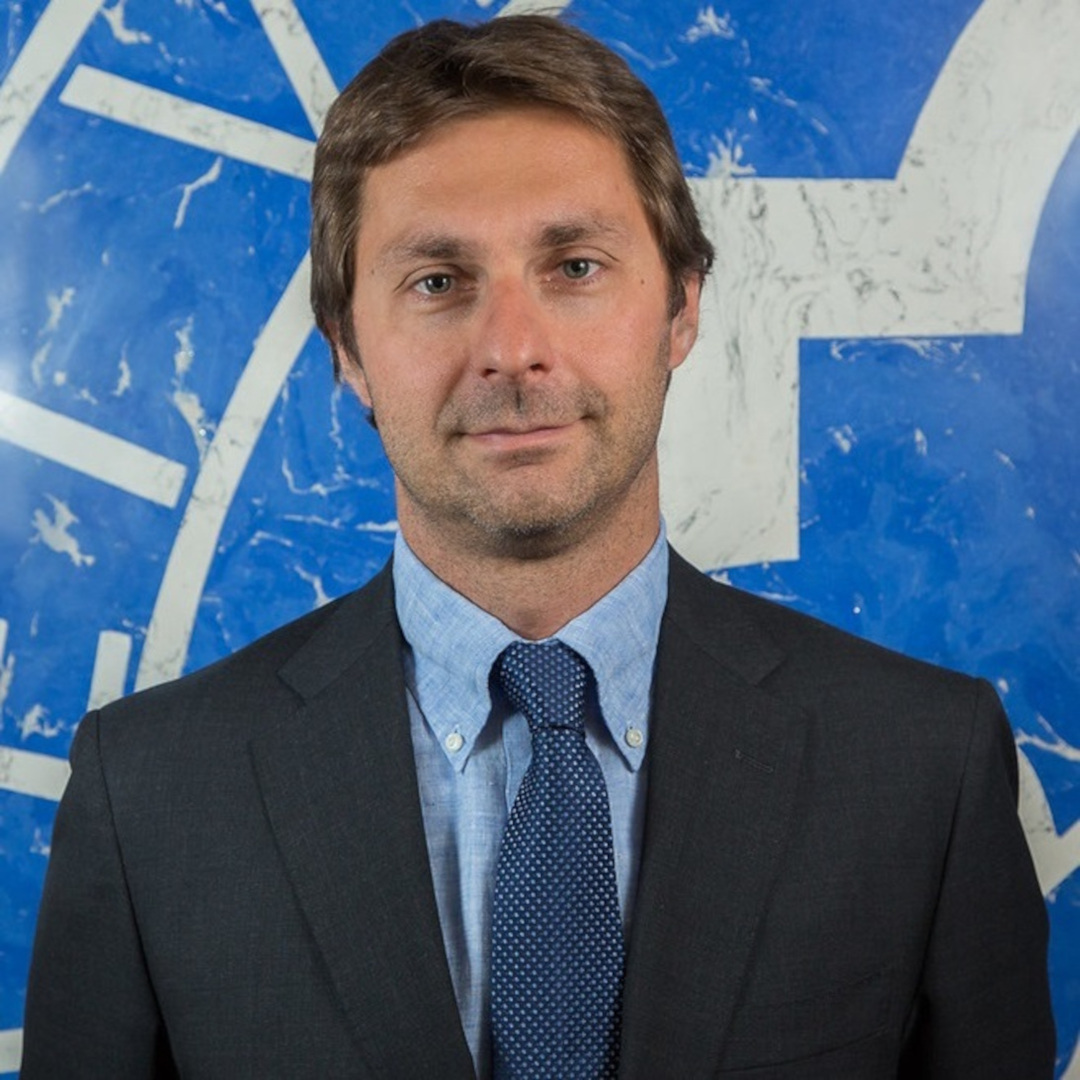
- Family law
The CNUE will prepare the implementation by the notariat of the Brussels II ter Regulation and will contribute to the reflections undertaken by the European Commission with a view to a new legislative initiative on filiation, announced for 2022. It will also support the need for the European institutions to adopt a European regulation on the mutual recognition of protection schemes for vulnerable adults. In the field of succession, the CNUE will present this year the results of the “MAPE Successions” project, a study on the implementation of Regulation (EU) 650/2012. The evaluation will cover both quantitative and qualitative data (number of successions with cross-border elements each year, number of wills identified abroad, number of European succession certificates, difficulties in applying the Regulation, etc.). The conclusions and recommendations will be presented to the European institutions at a conference in Brussels at the end of 2022.
- Training of notaries
The CNUE thus intends to make its contribution to the European Commission’s 2021-2024 strategy for judicial training, which sets the objective of training 30% of notaries in EU law each year. Throughout the year, the CNUE will hold its “EU L@w for Notaries – Notaries for EU L@w” training programme for European notaries. Combining interactive face-to-face seminars with e-learning, notaries will be able to benefit from training in family law, company law and data protection law.
